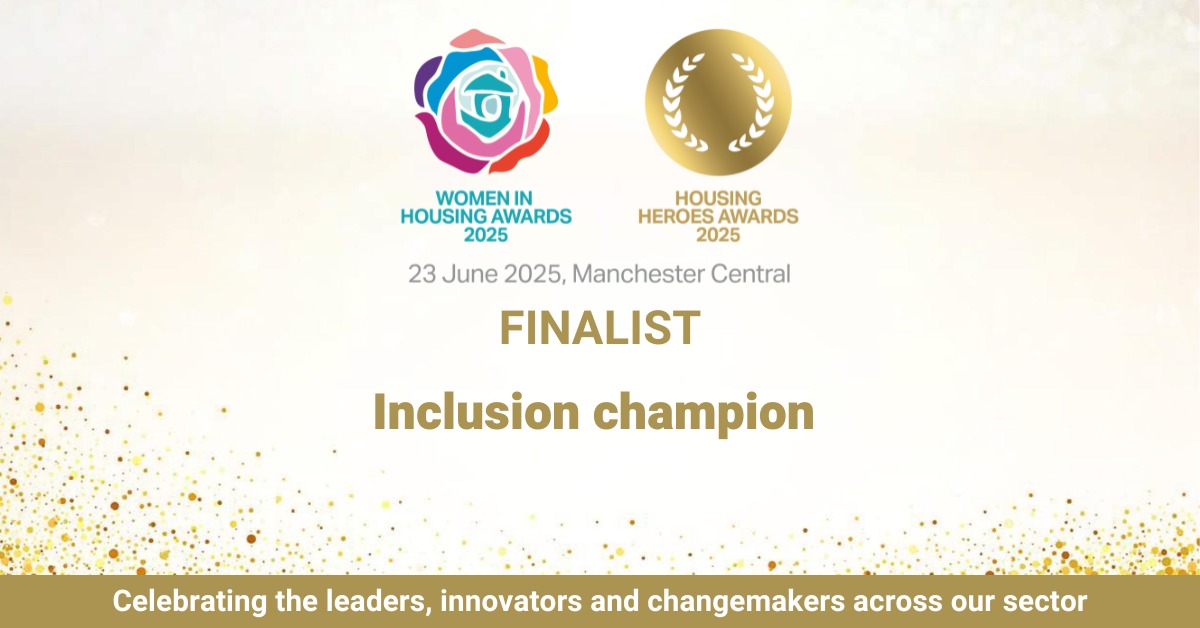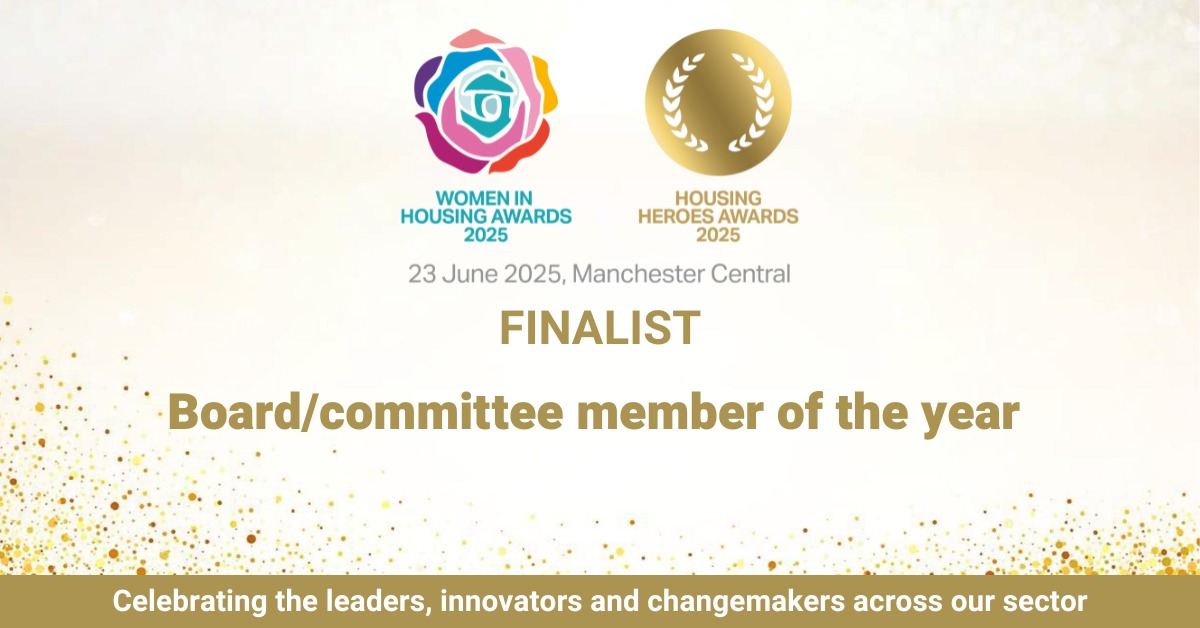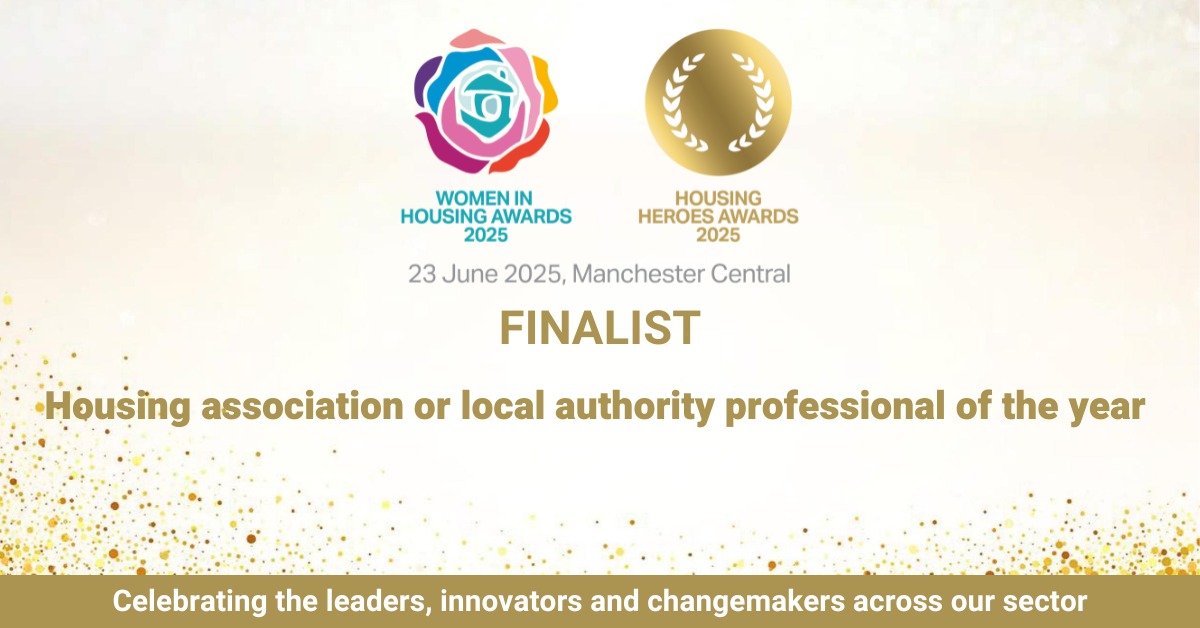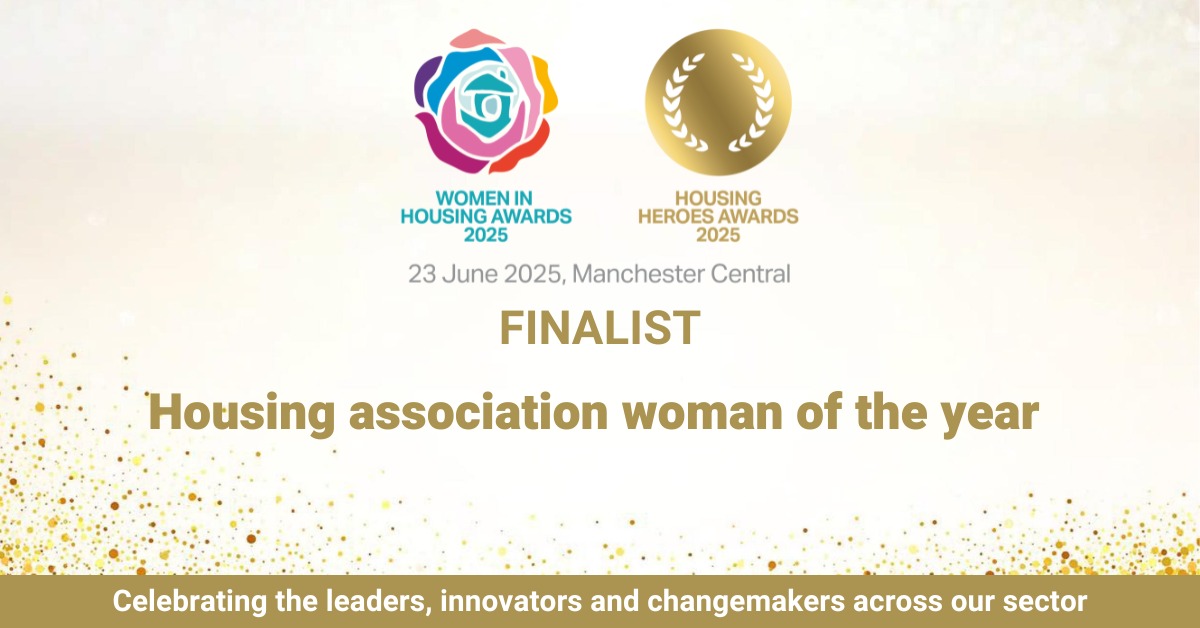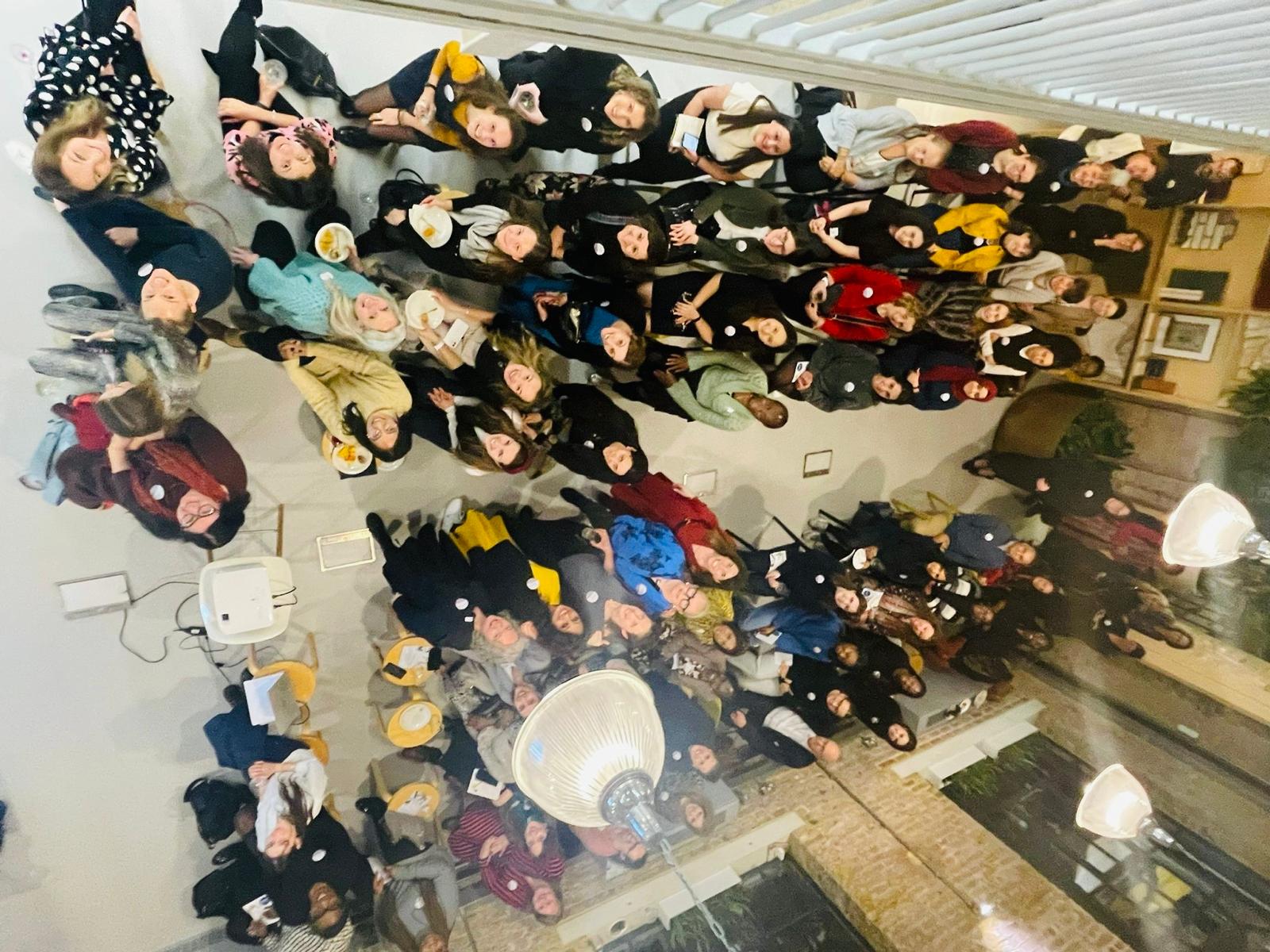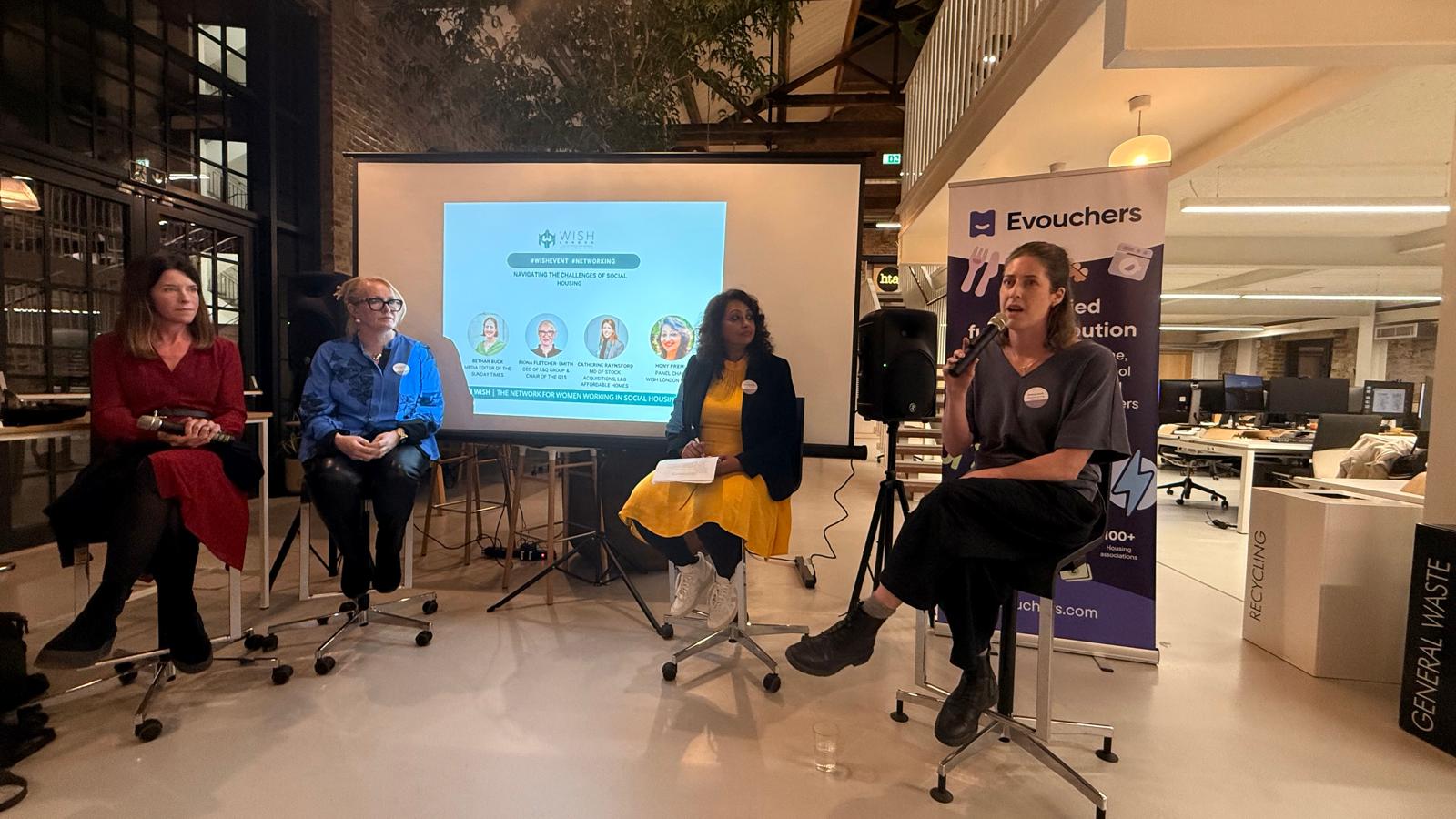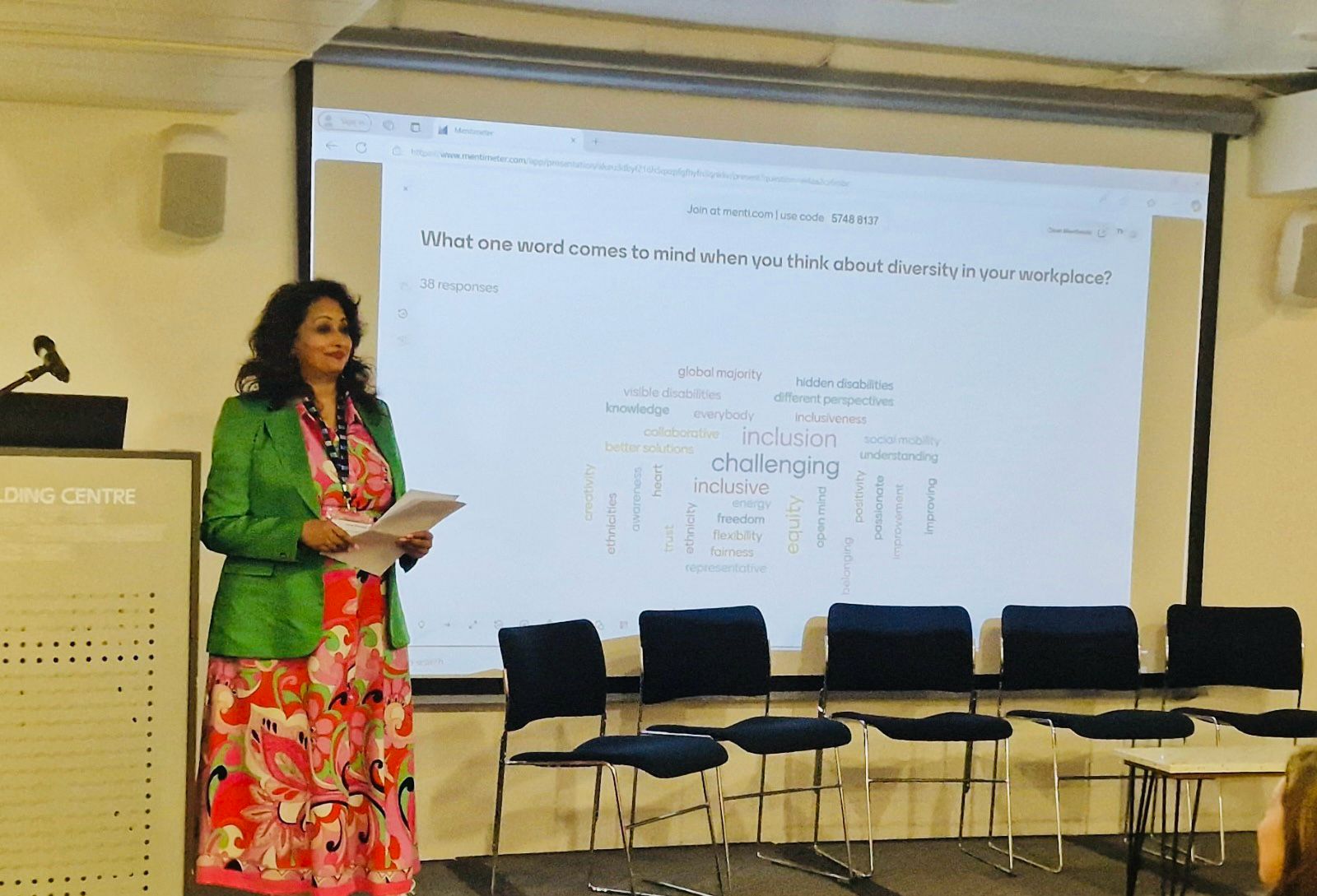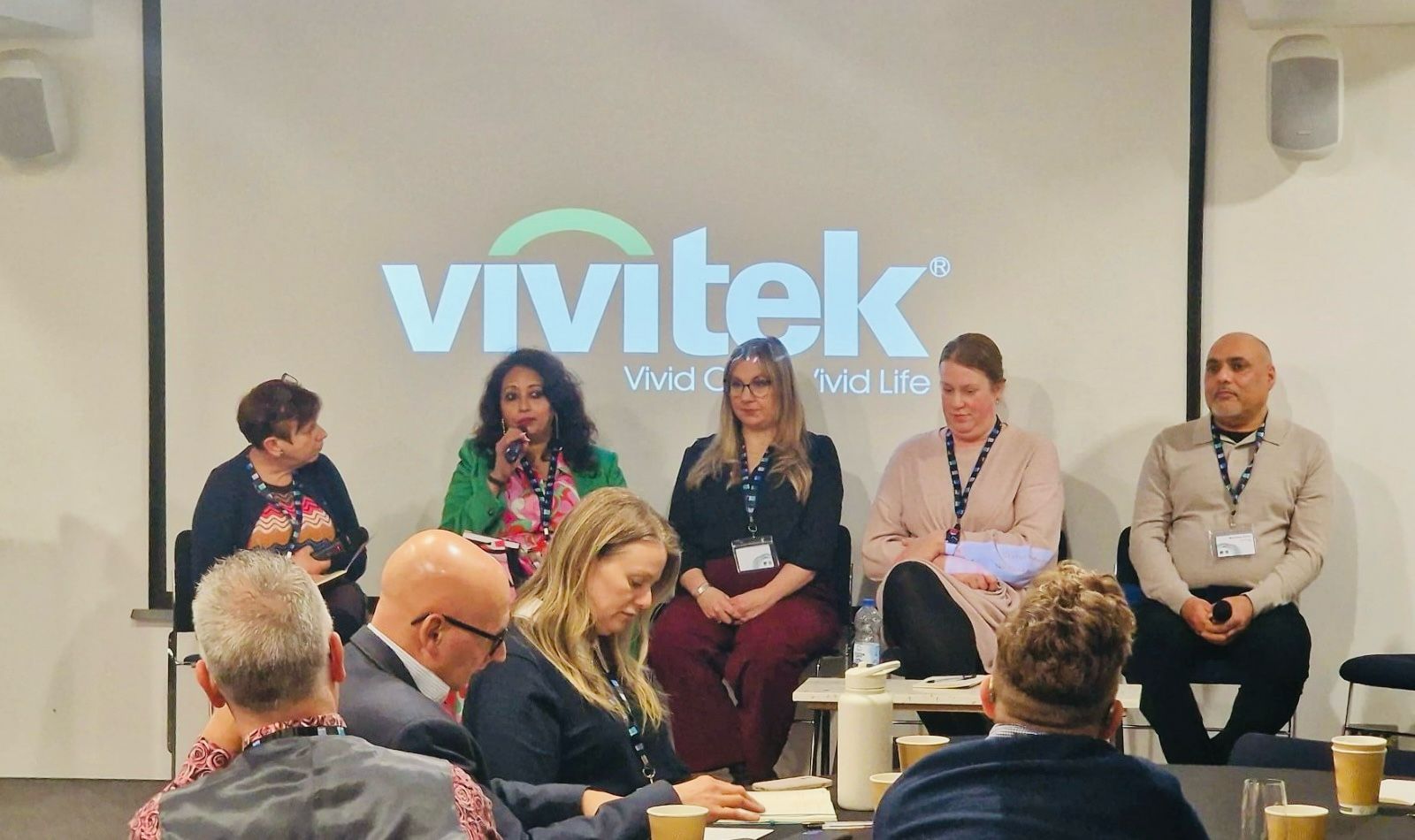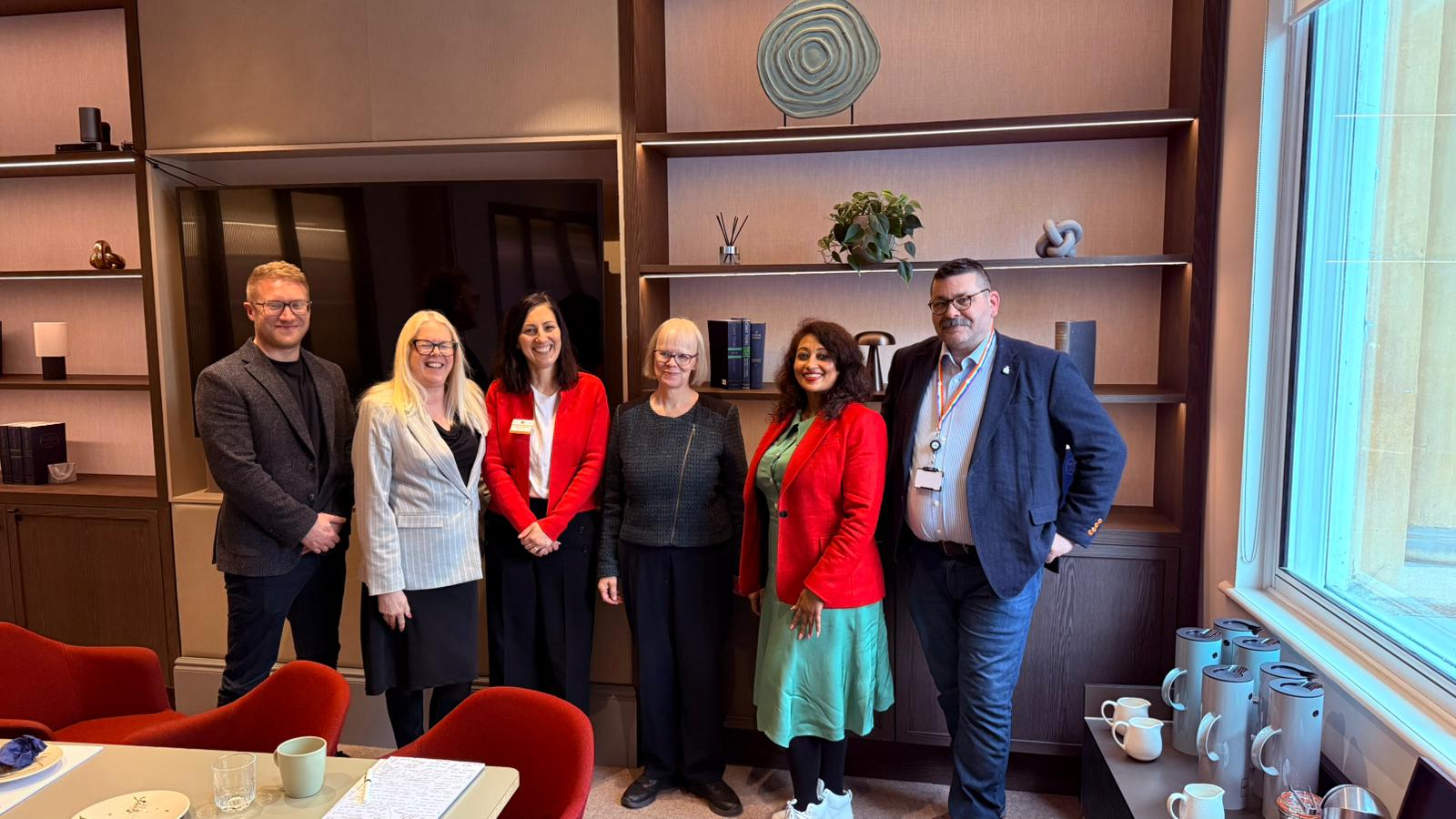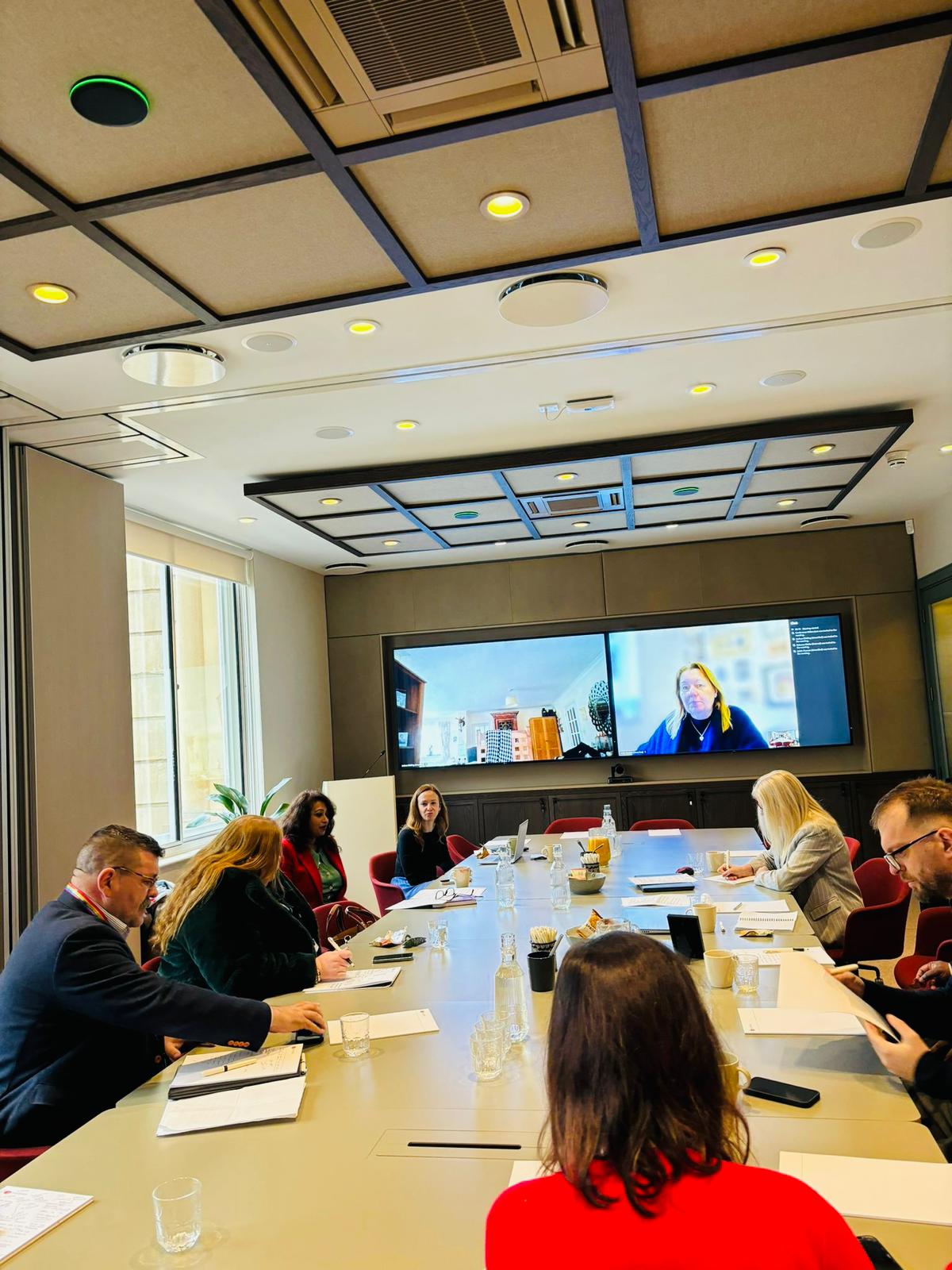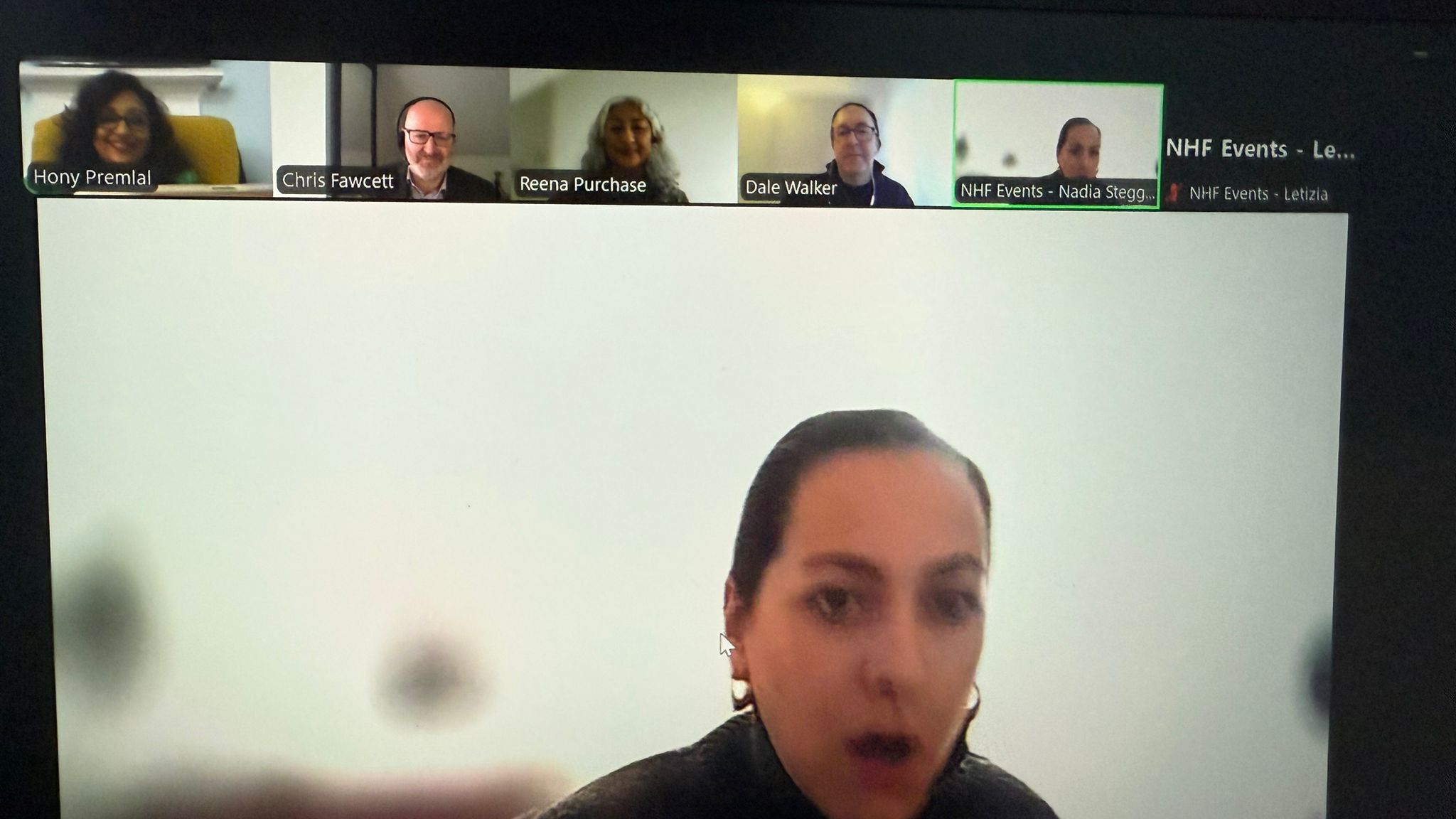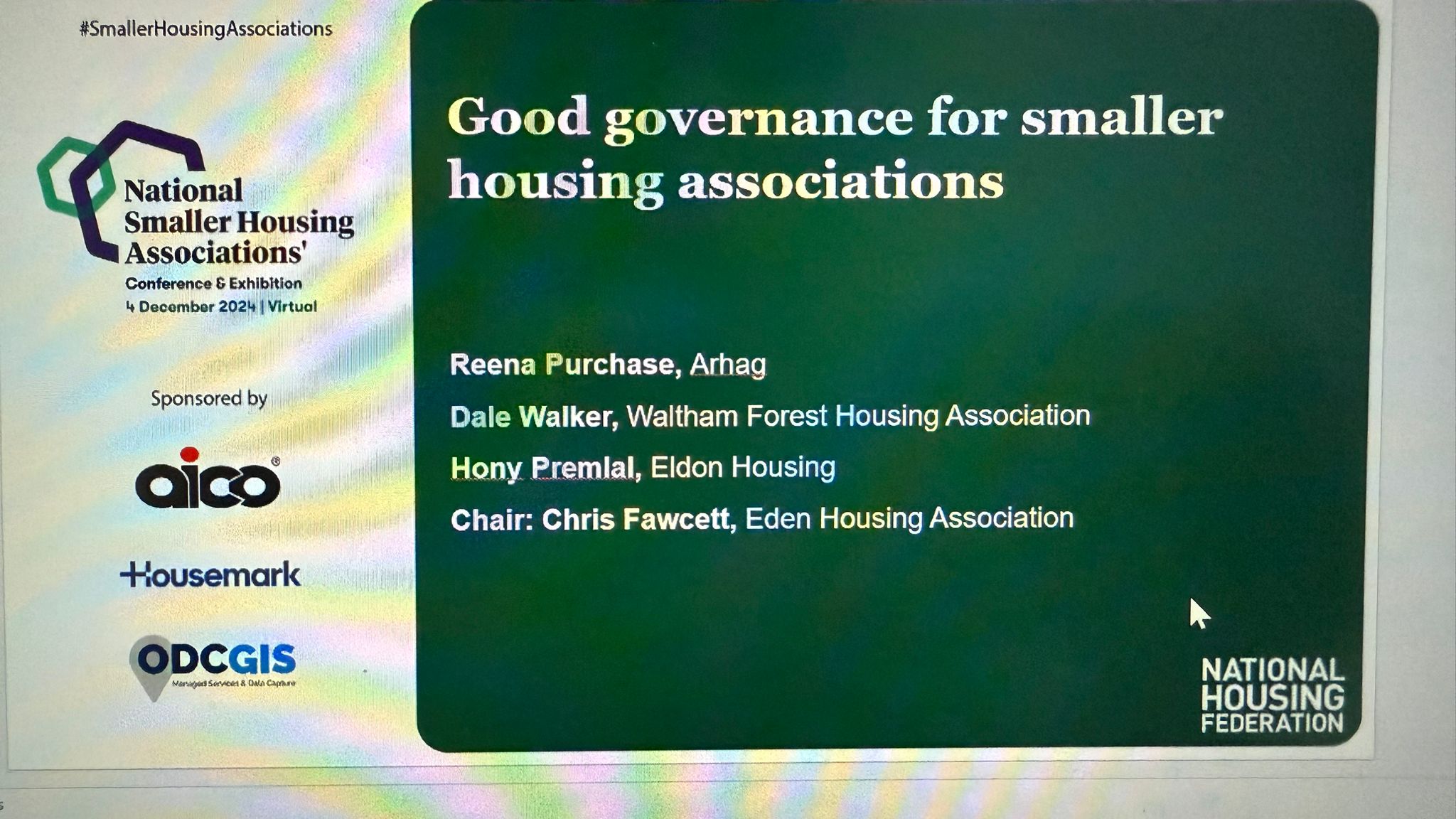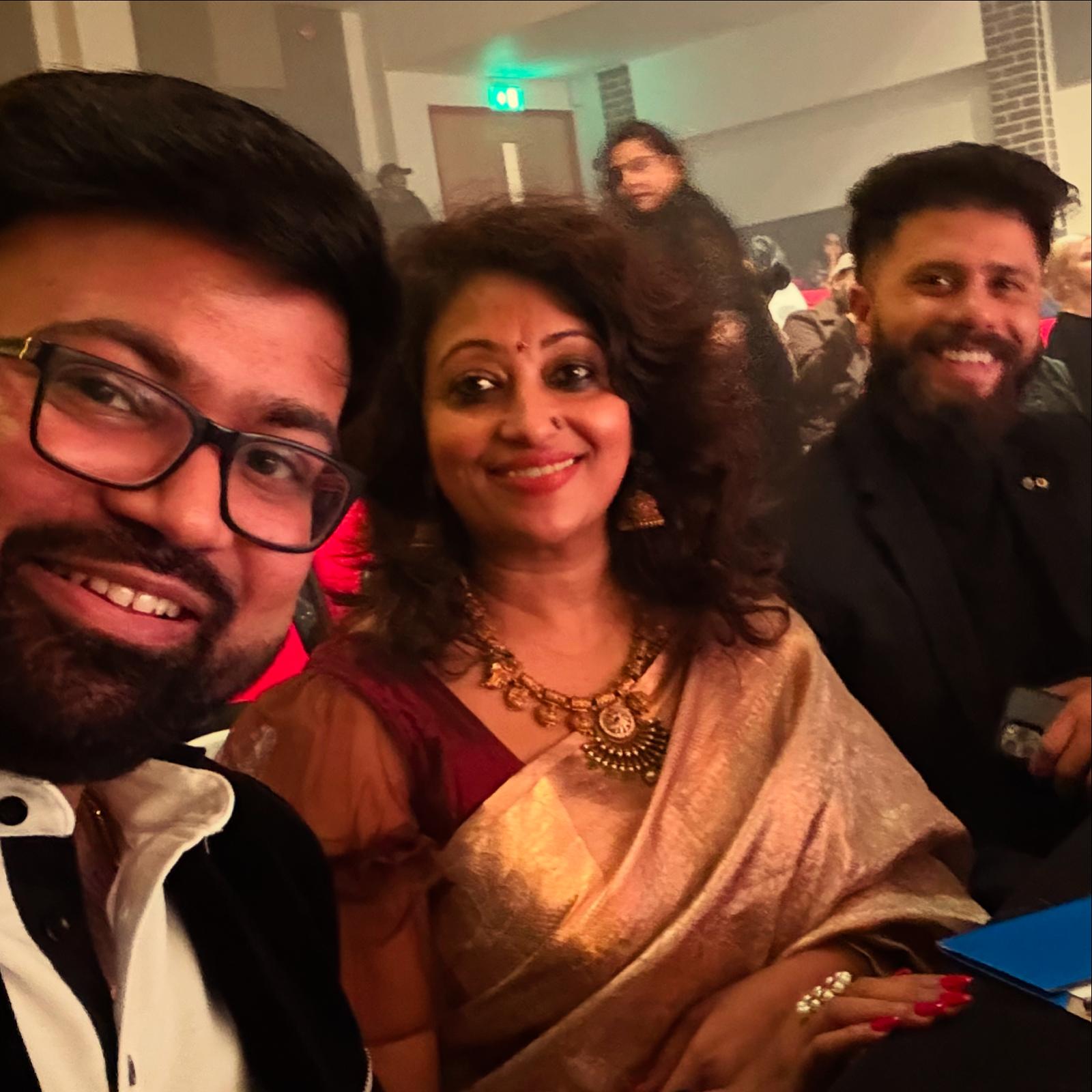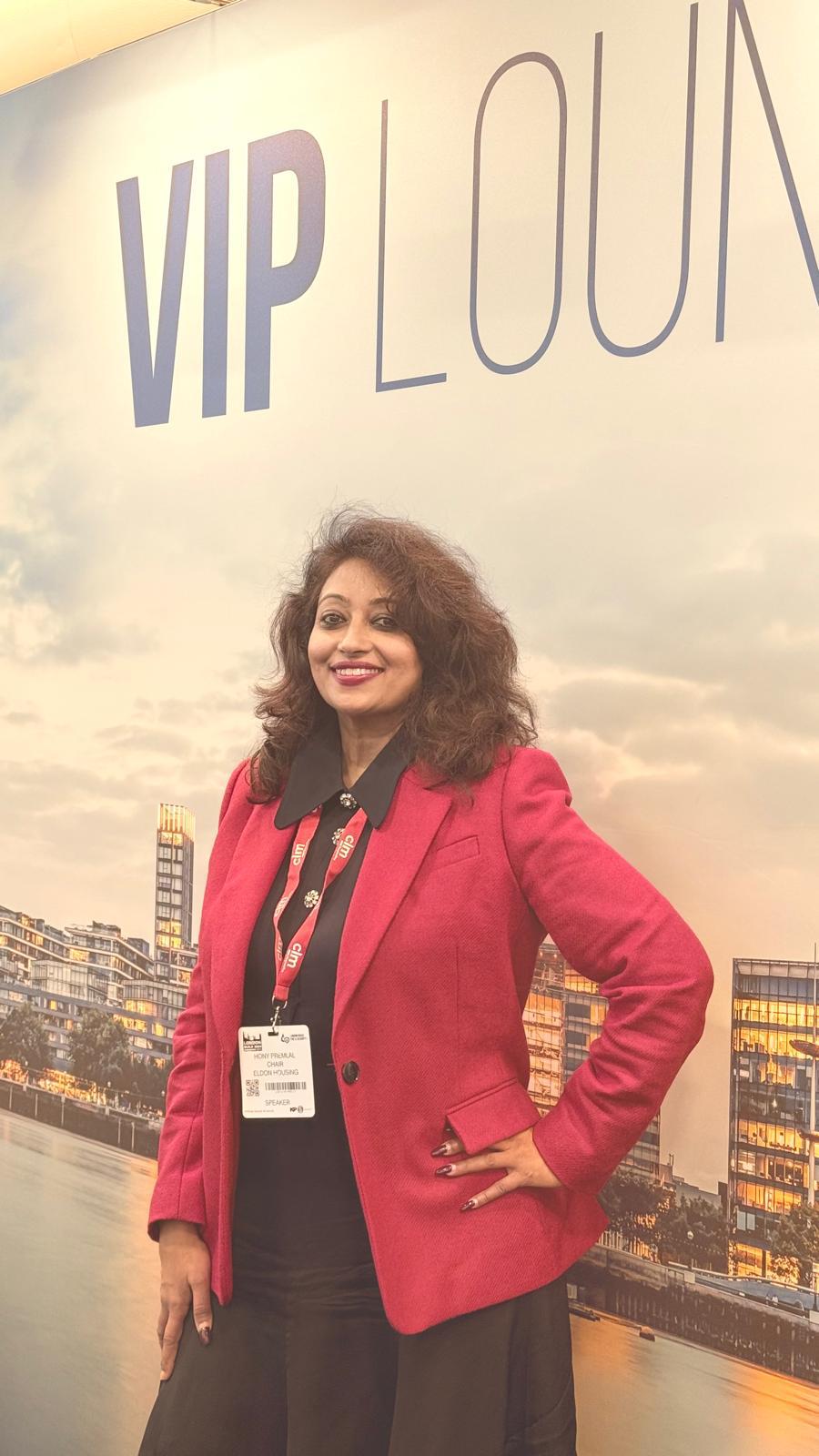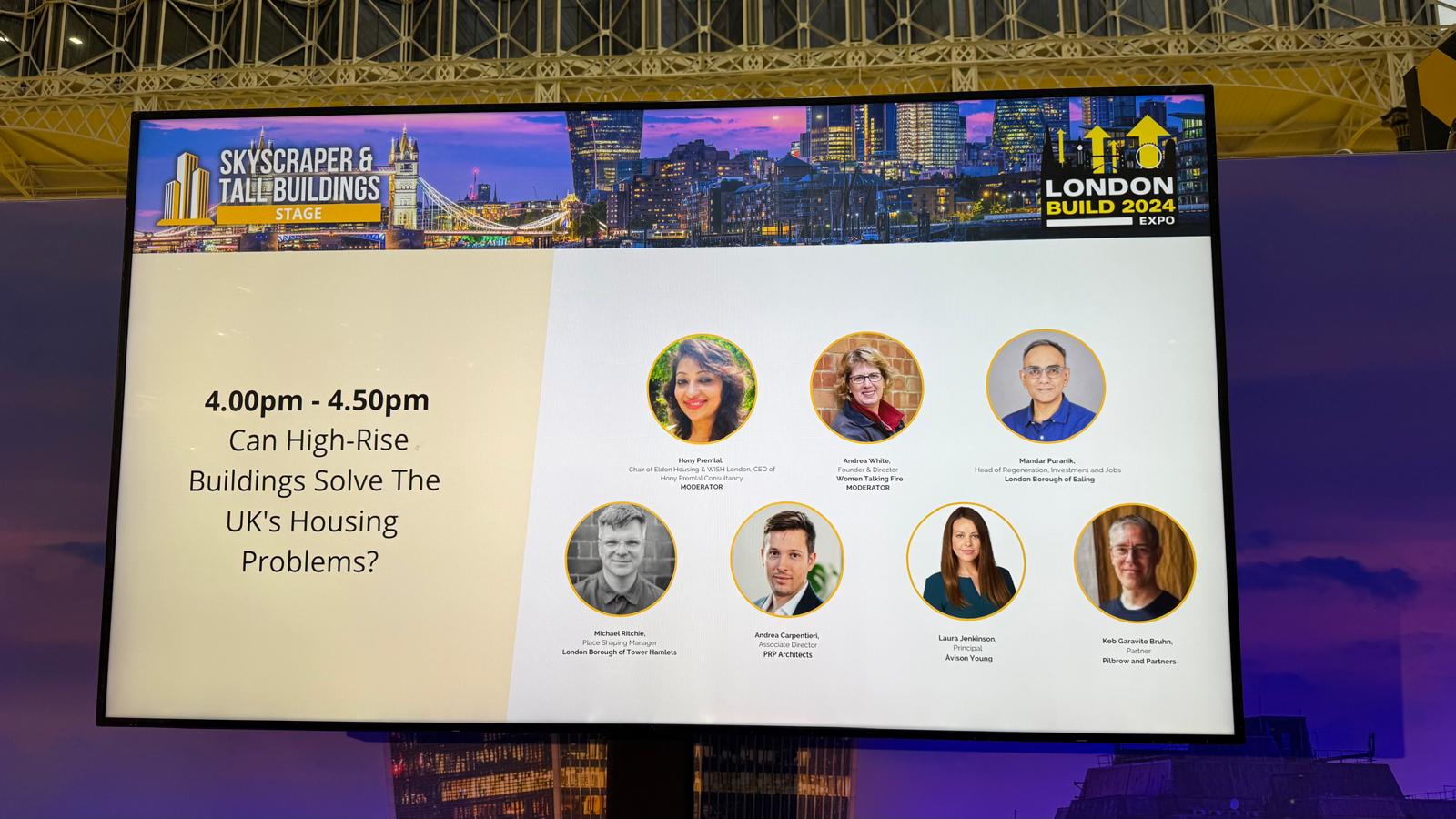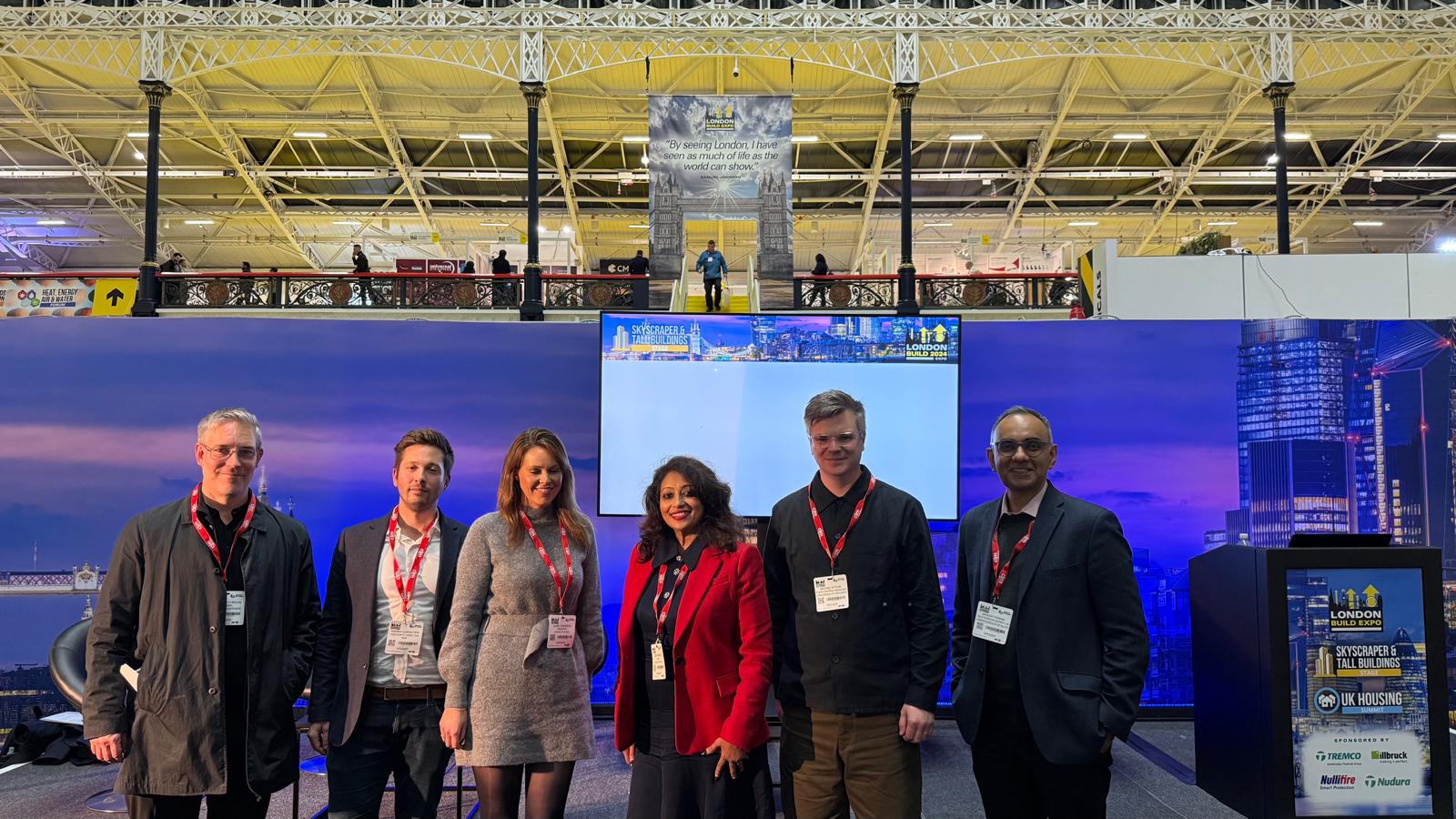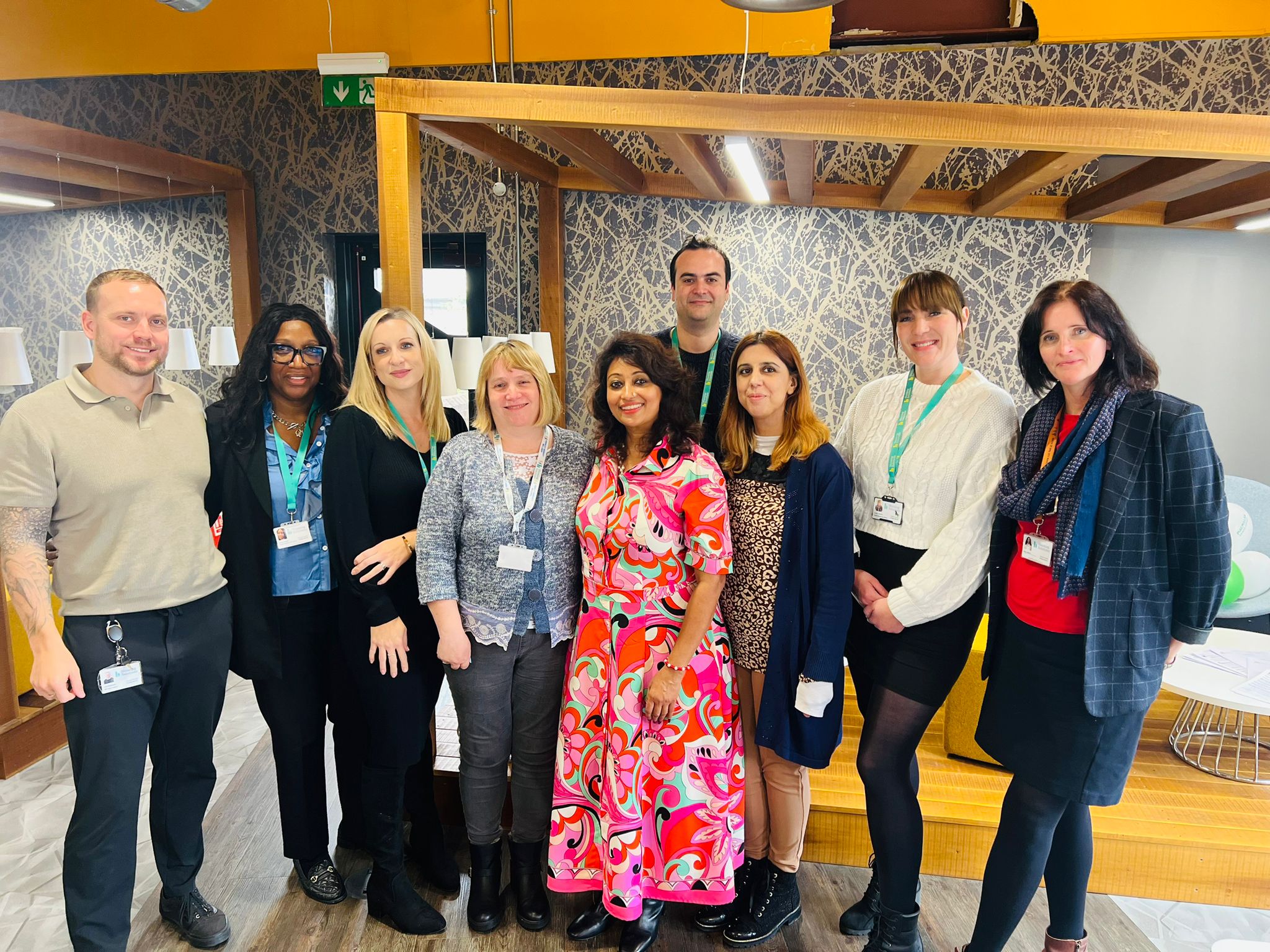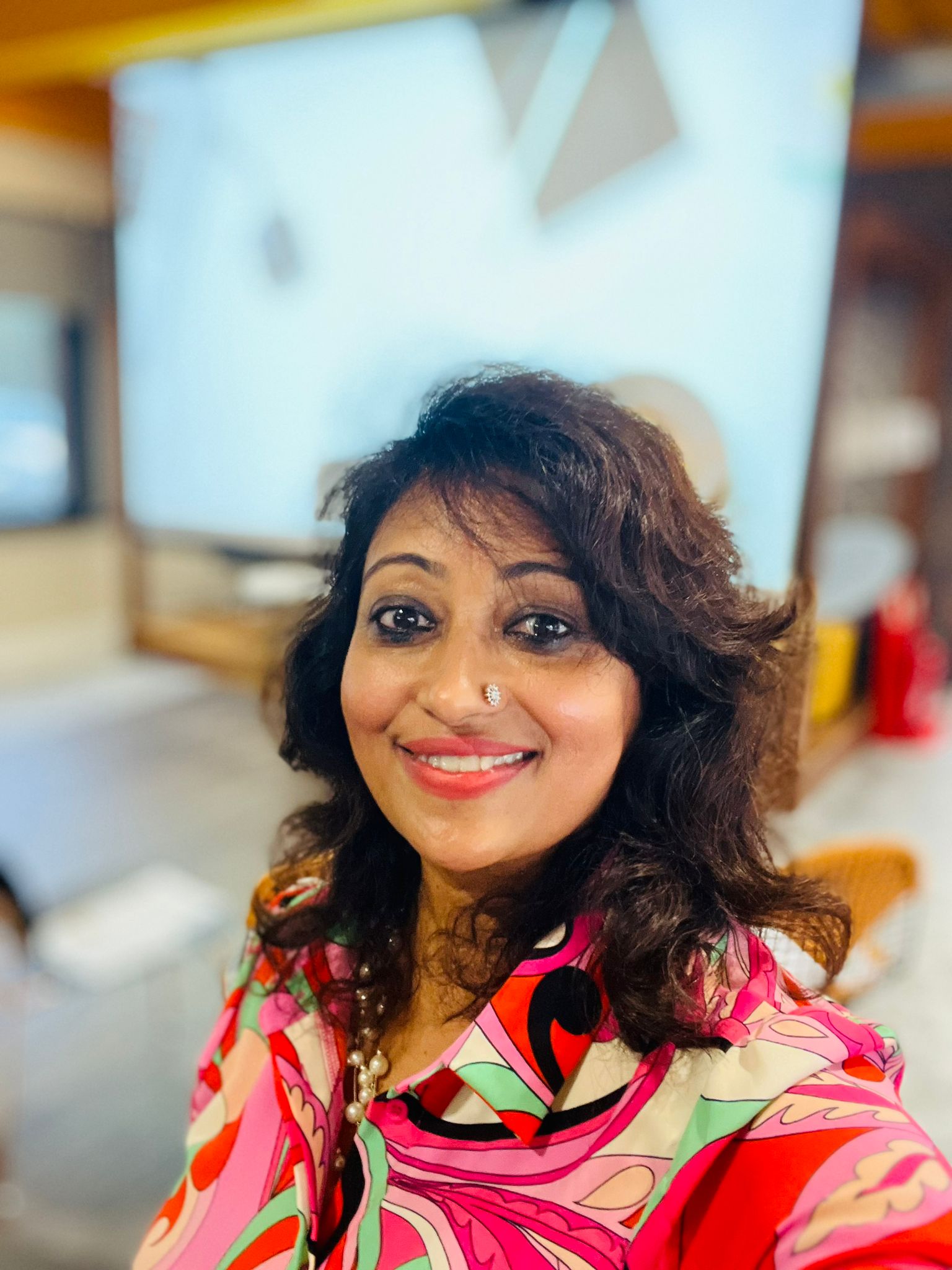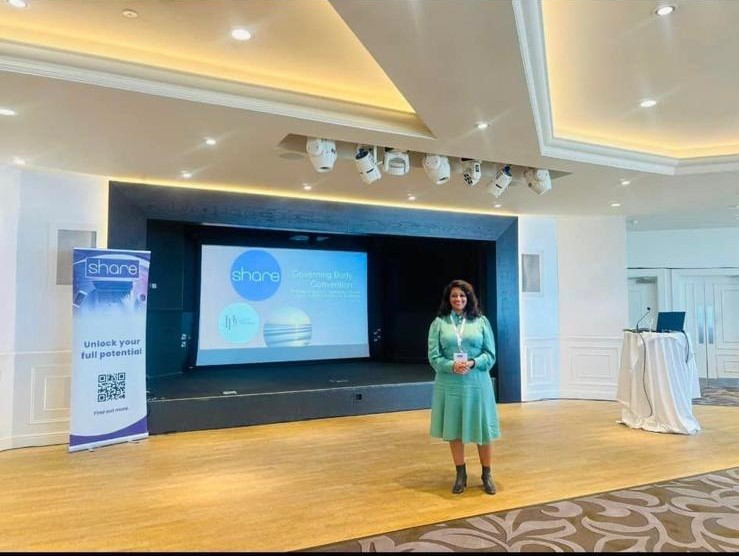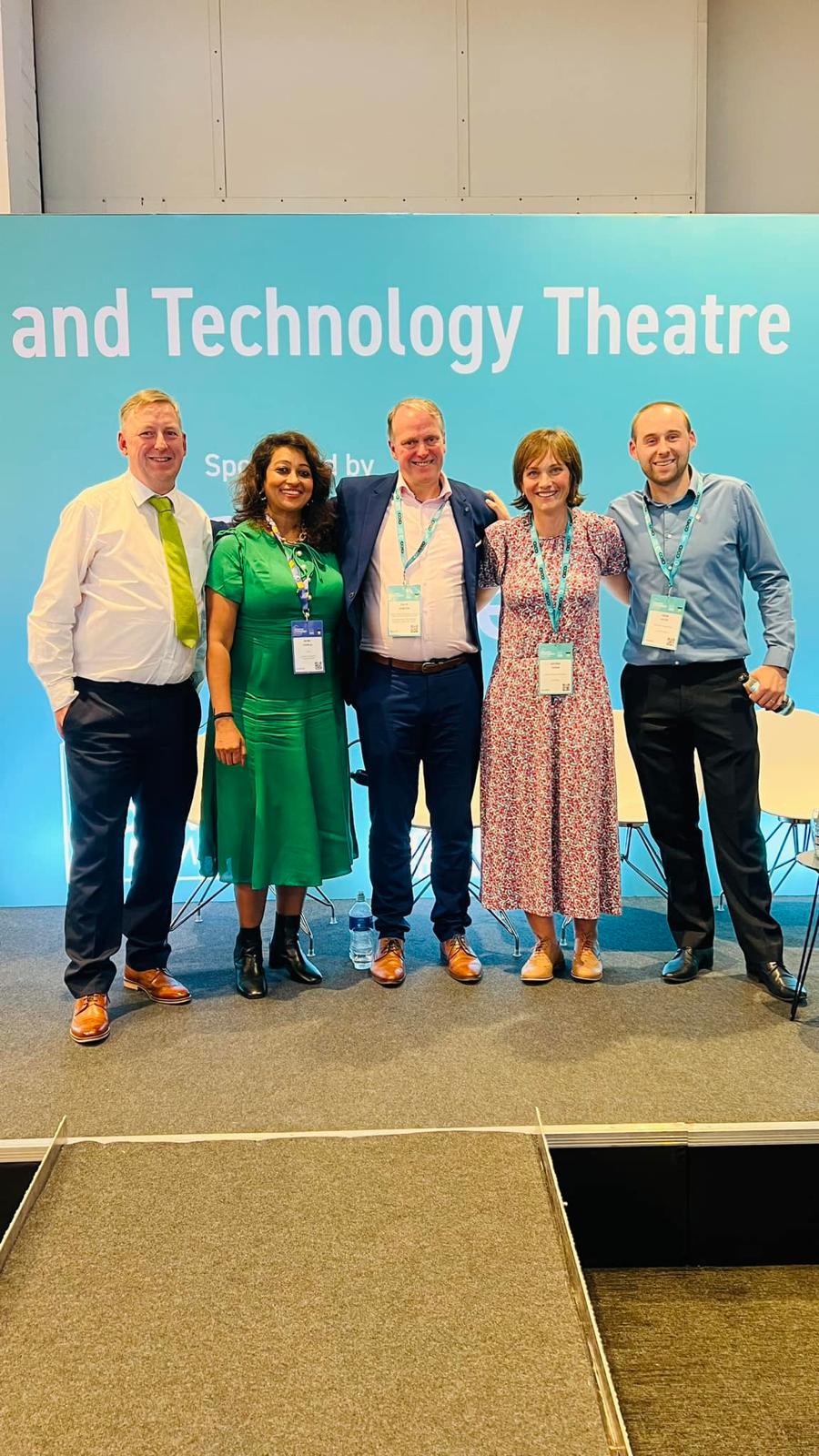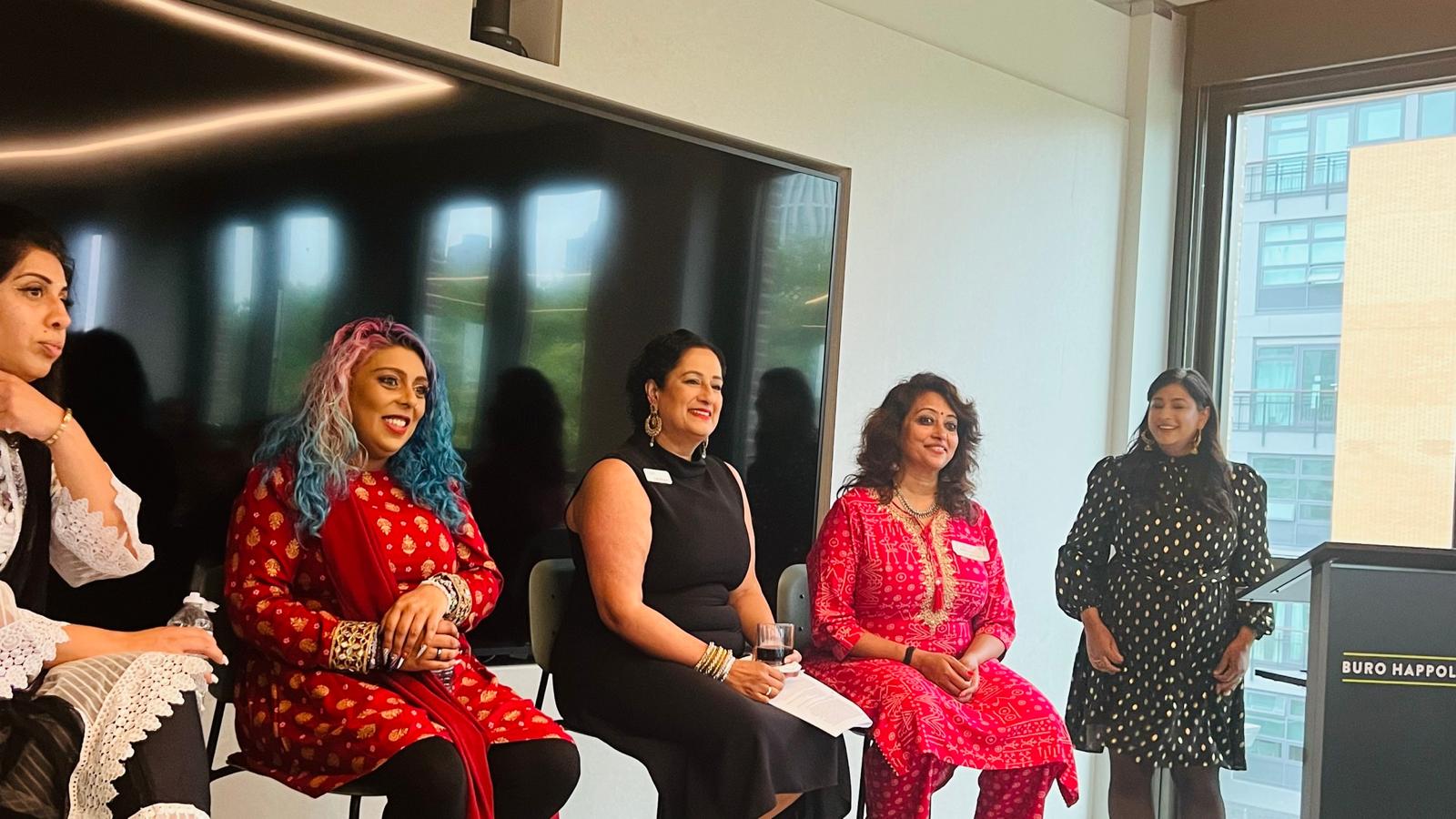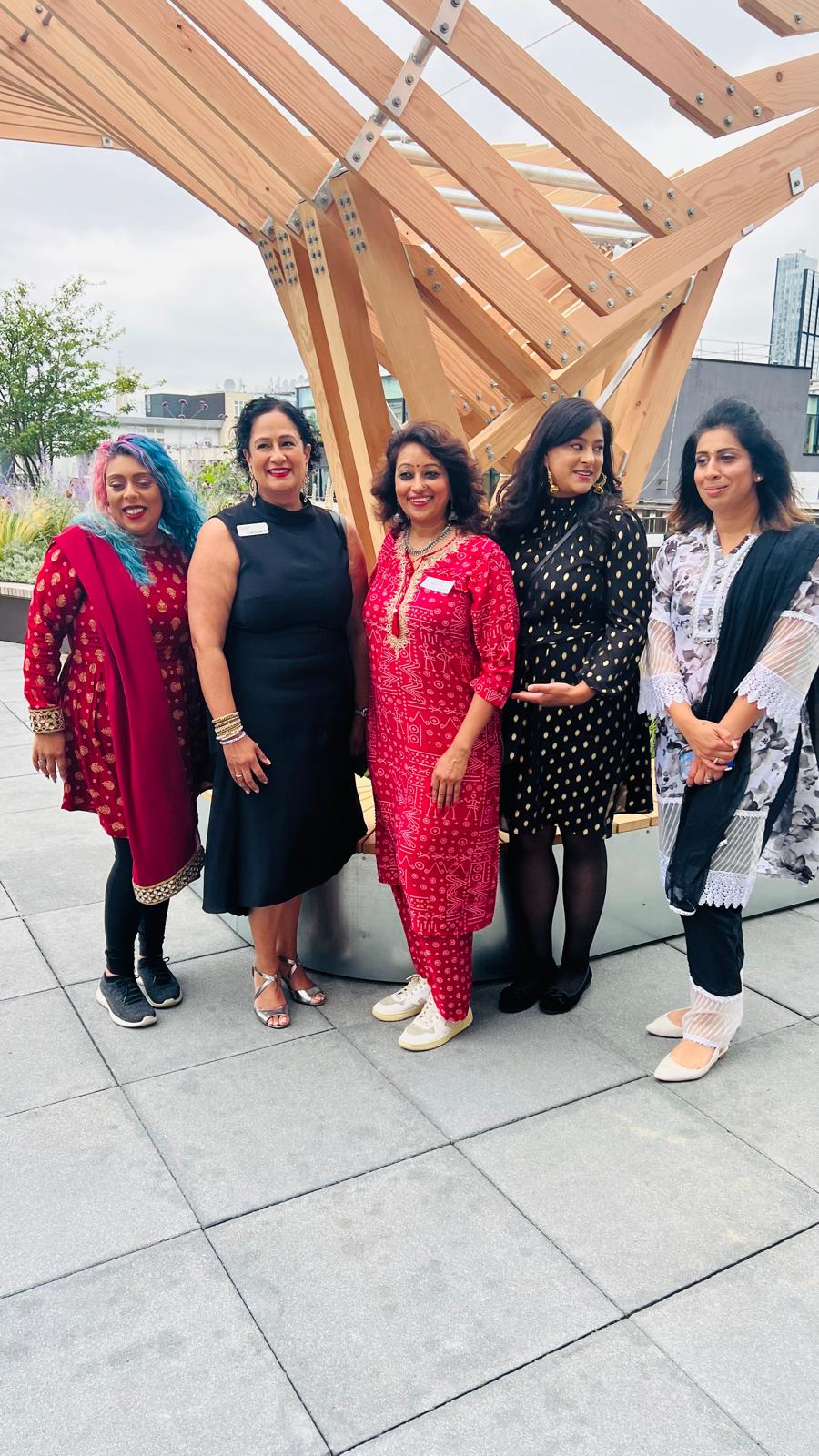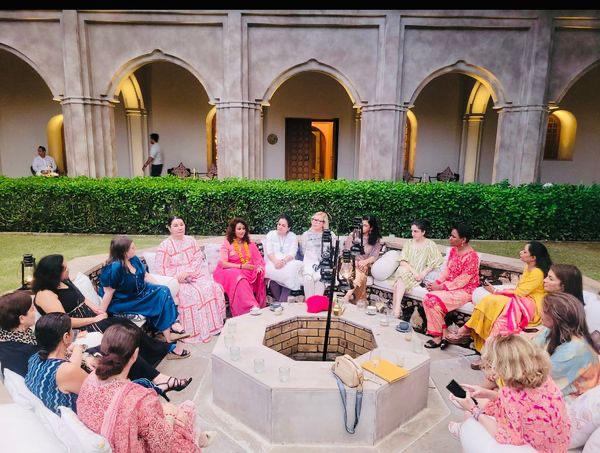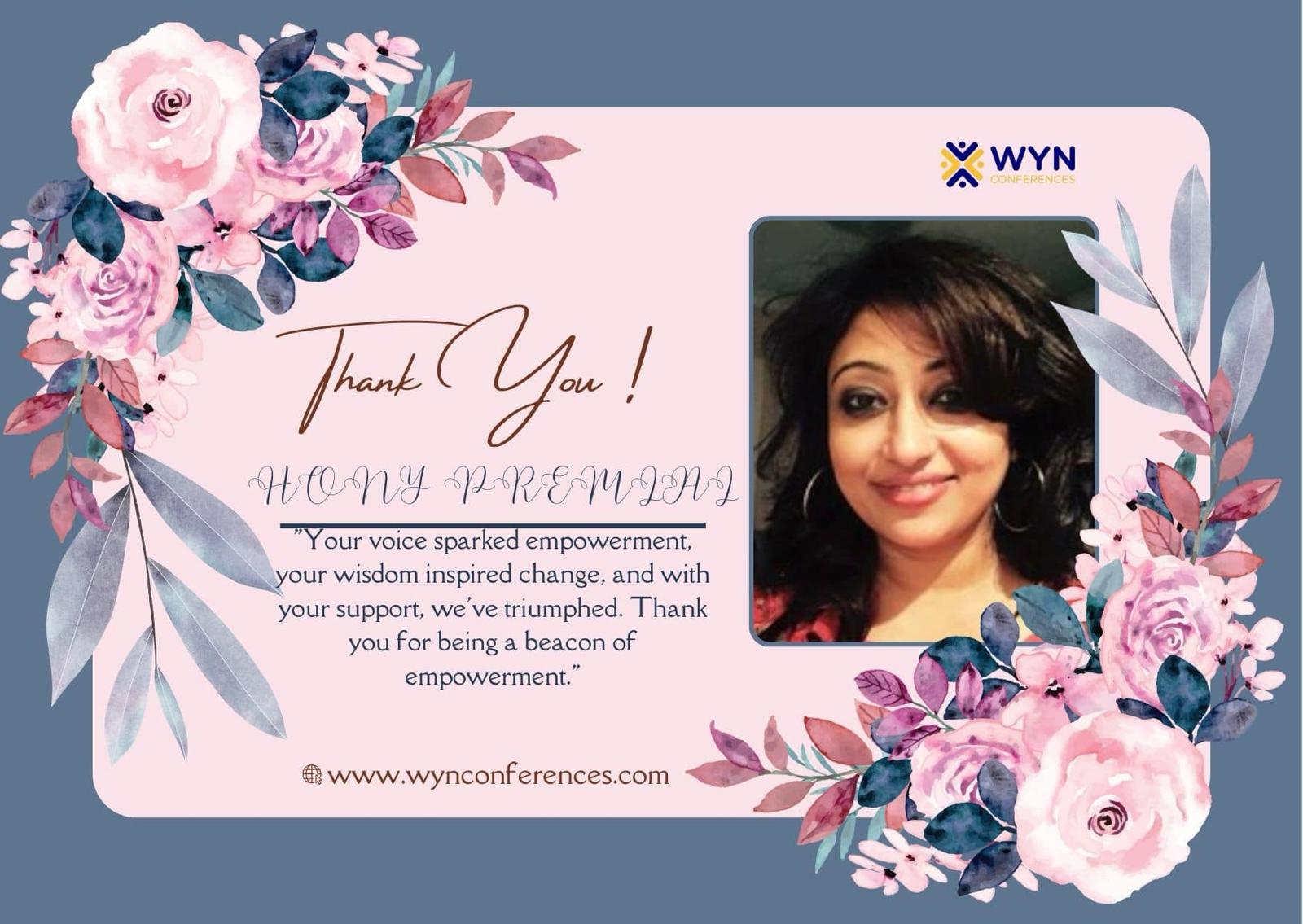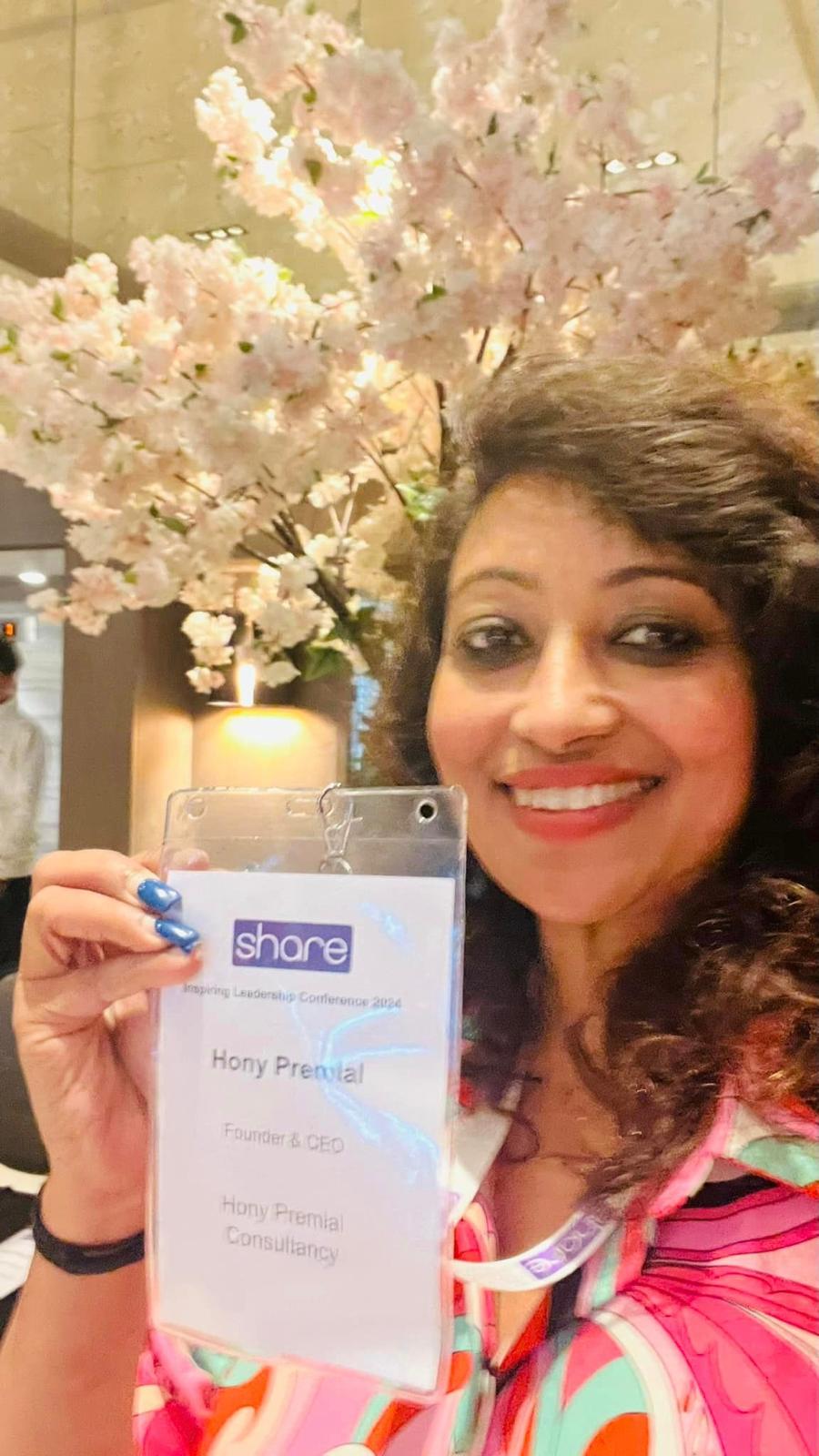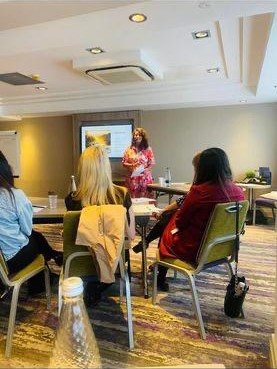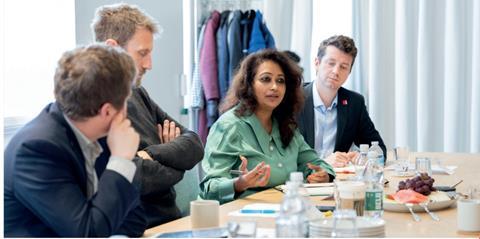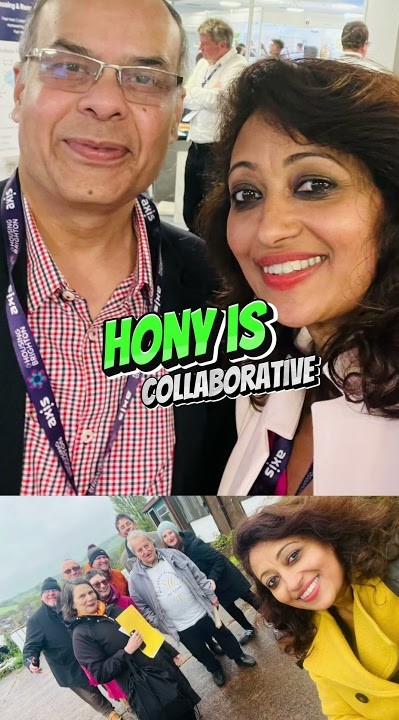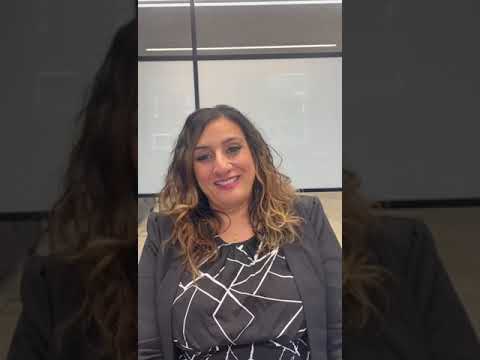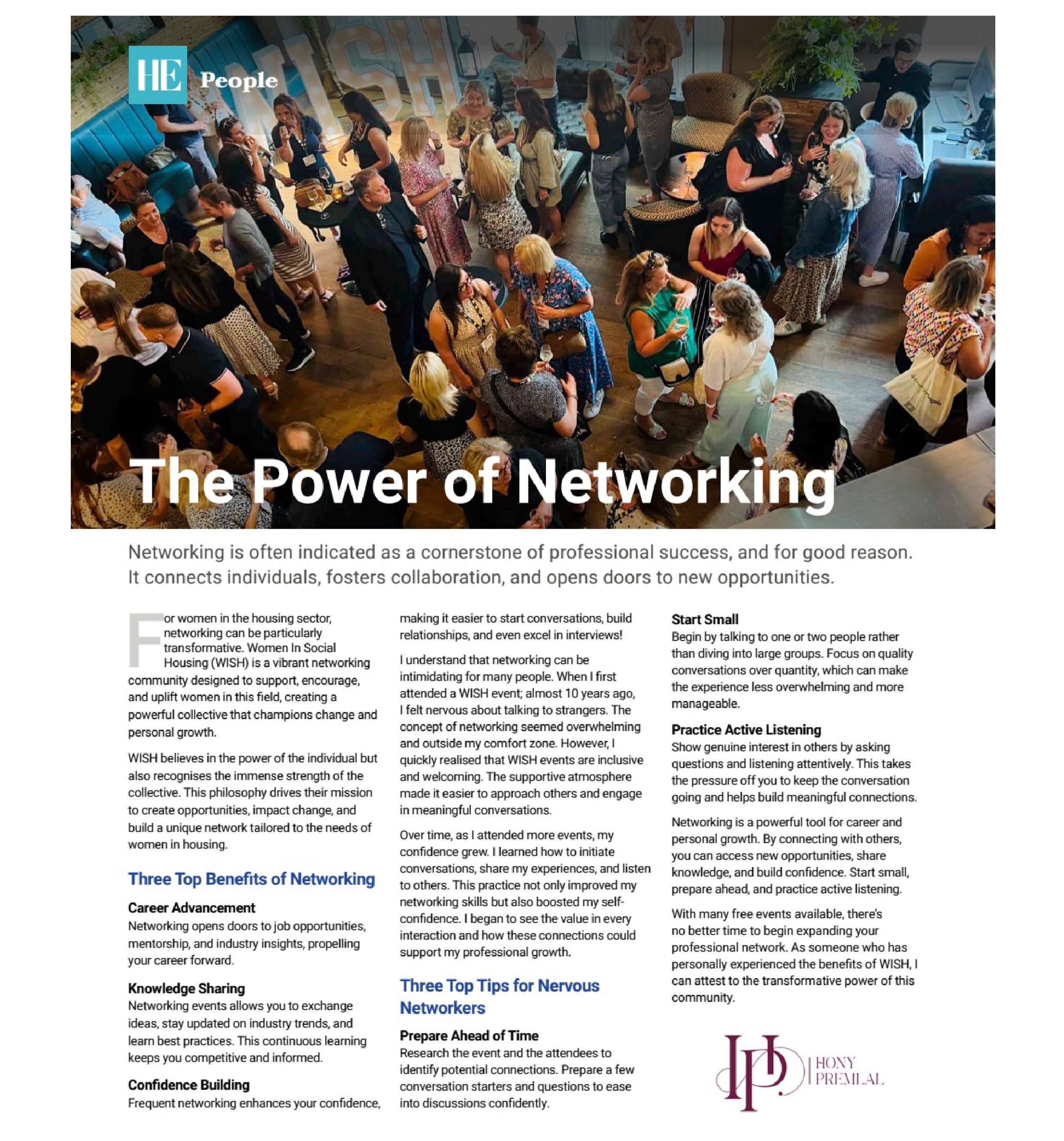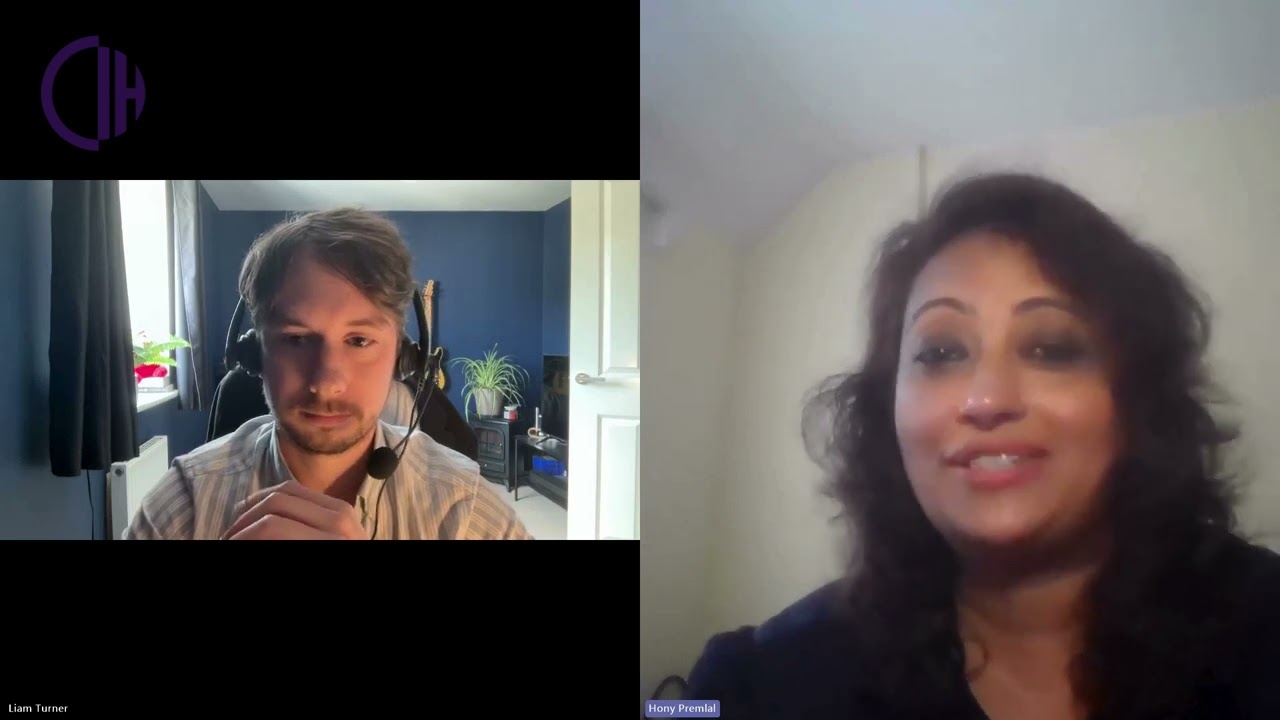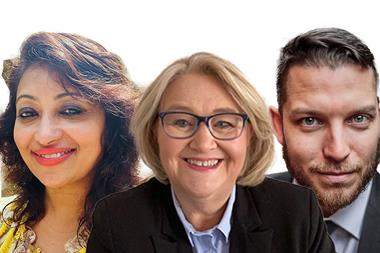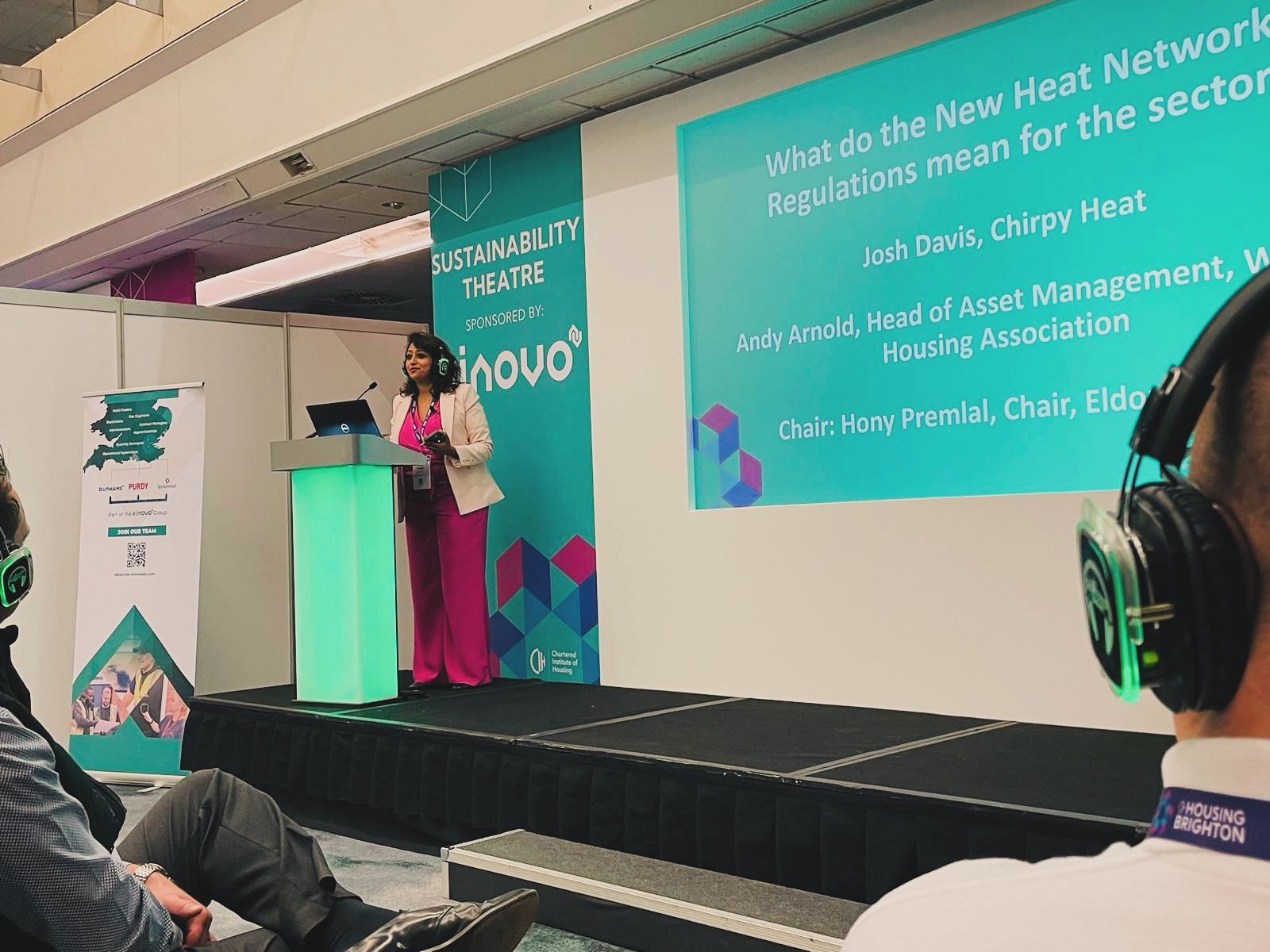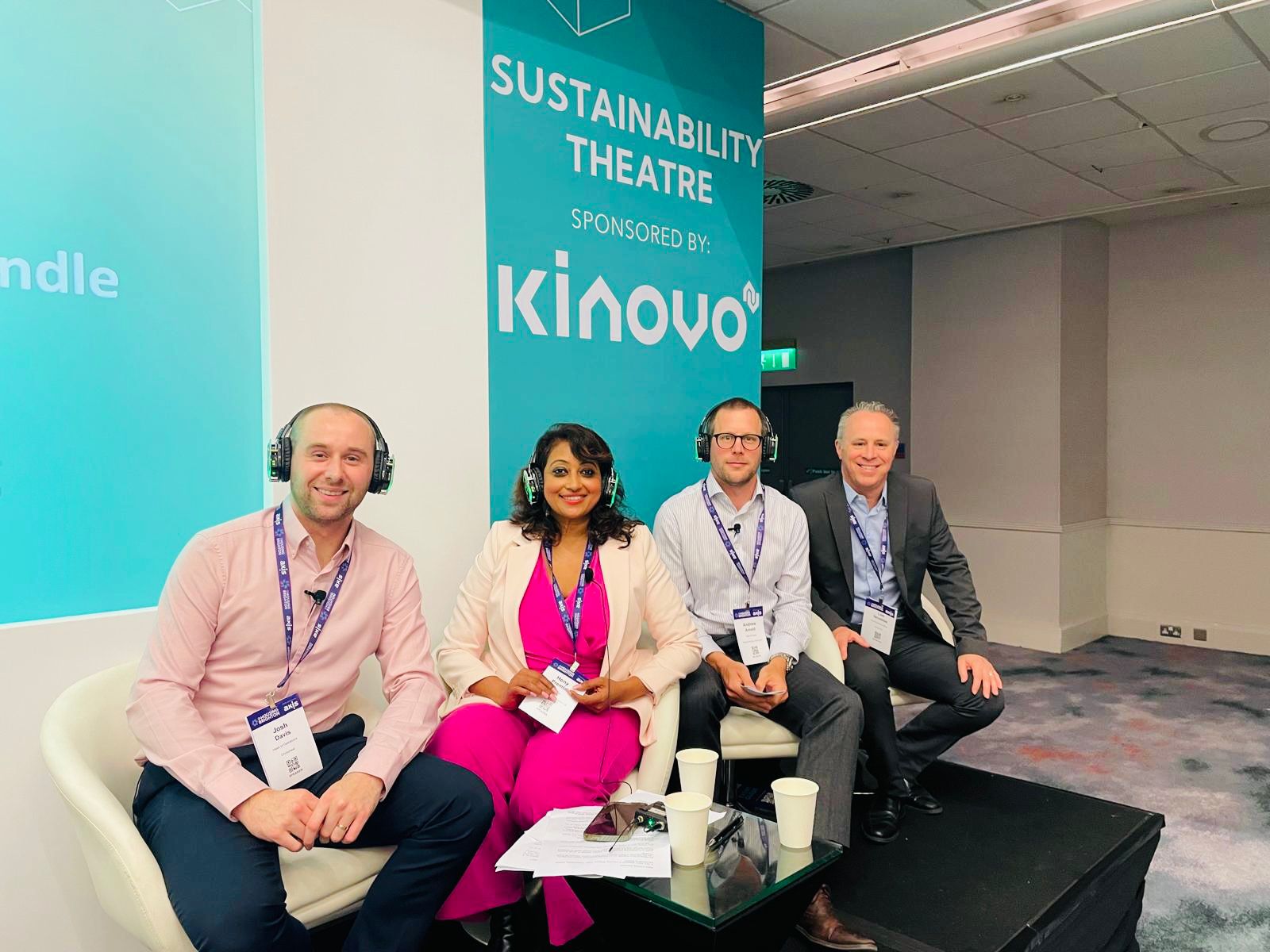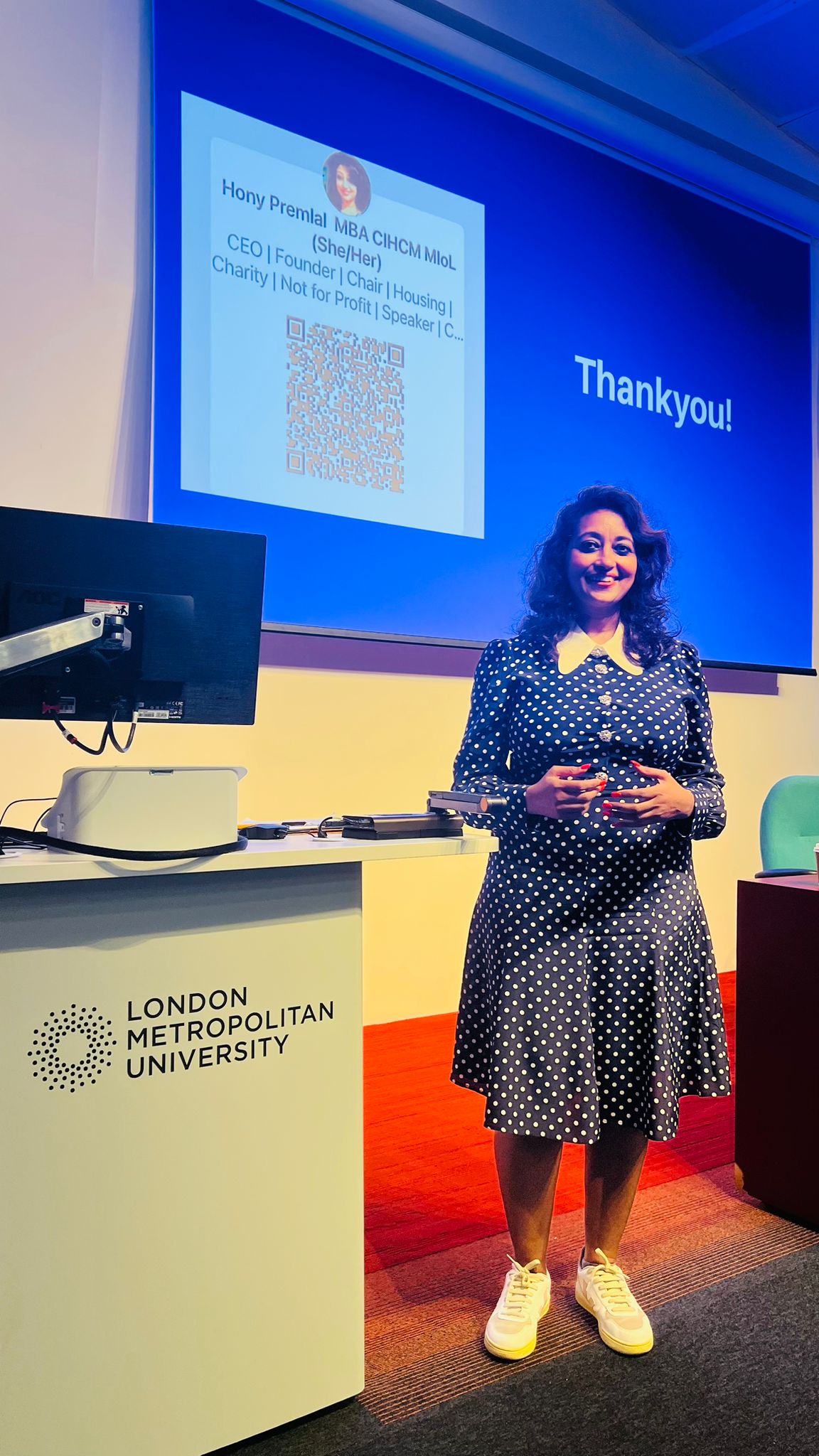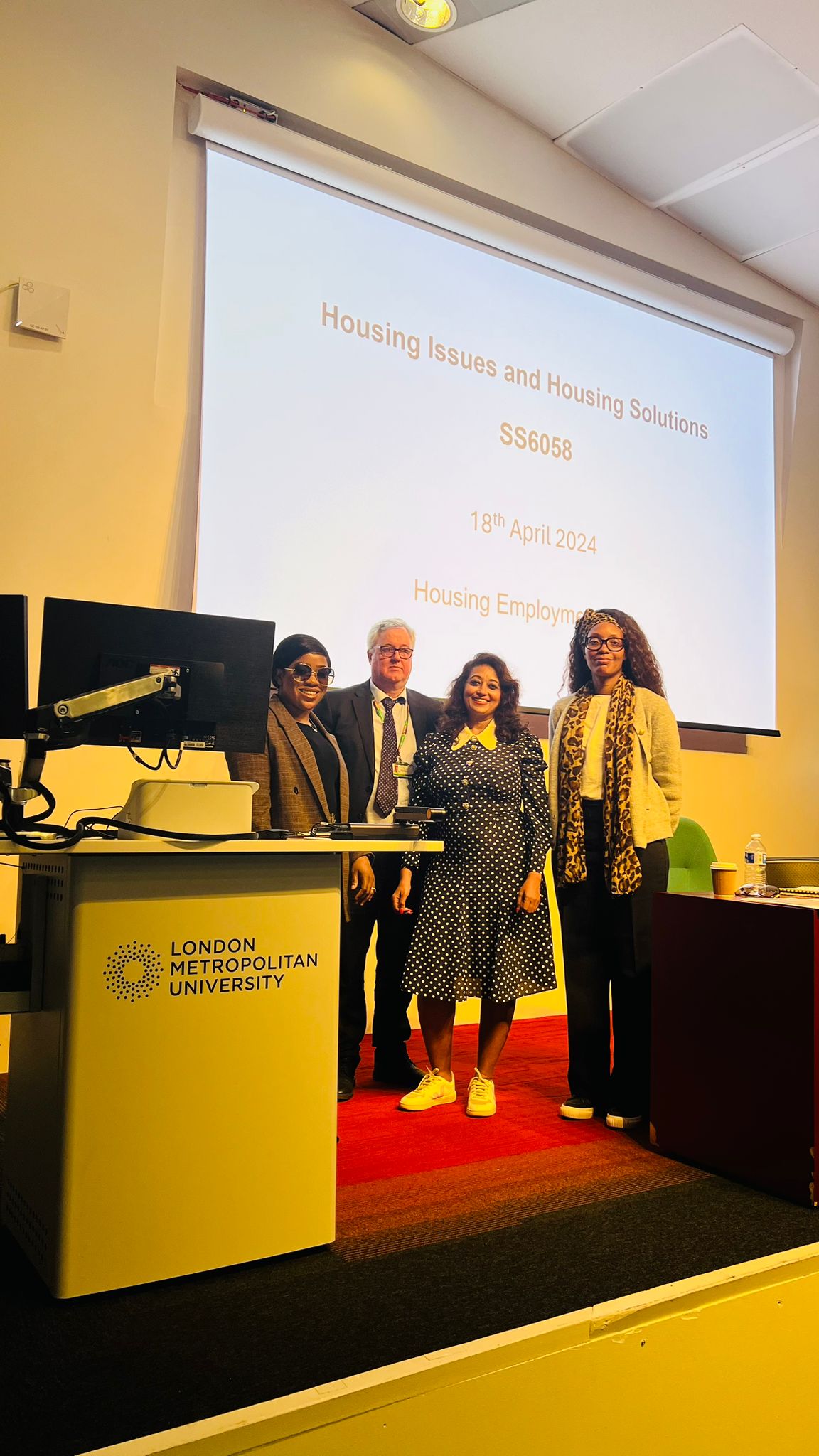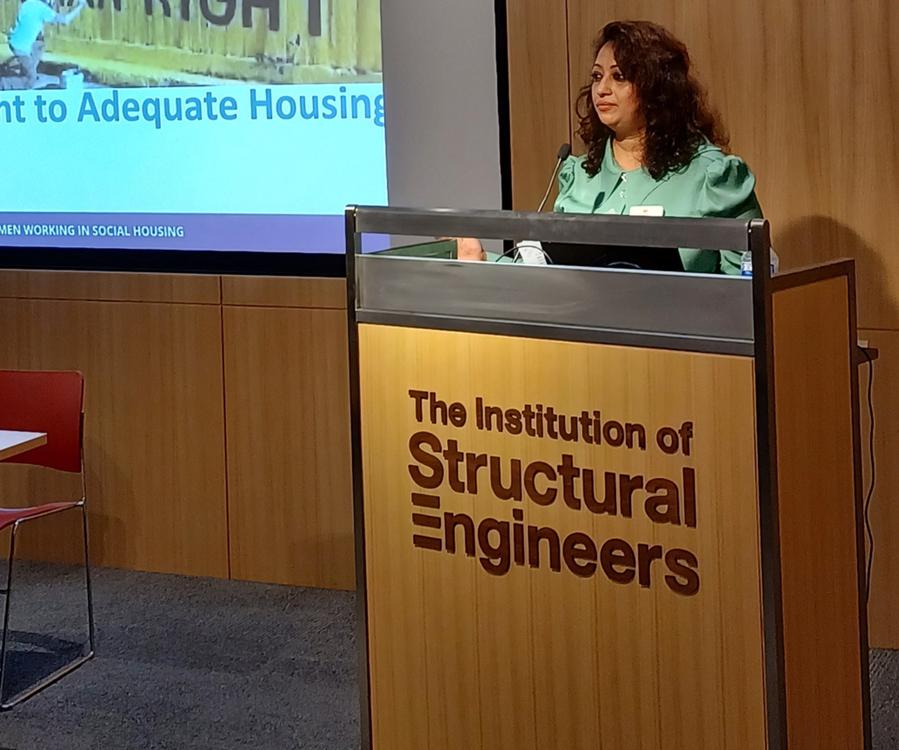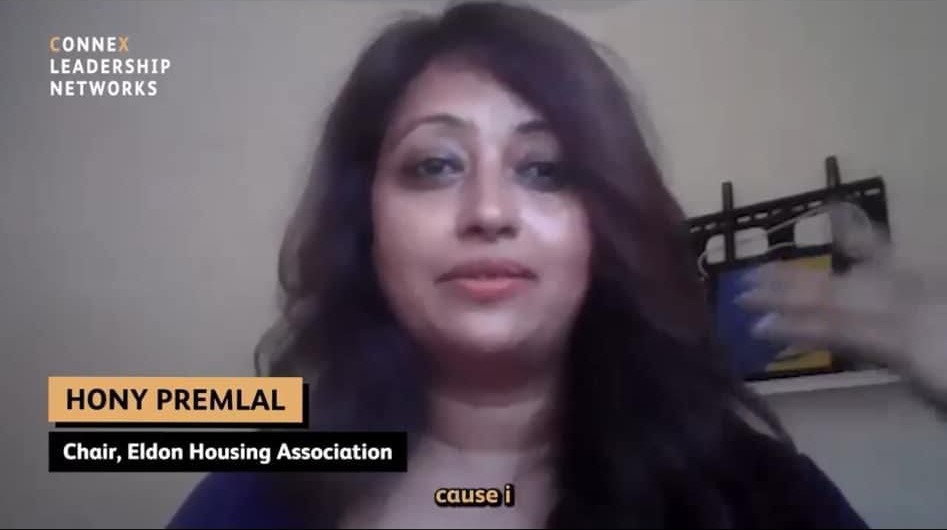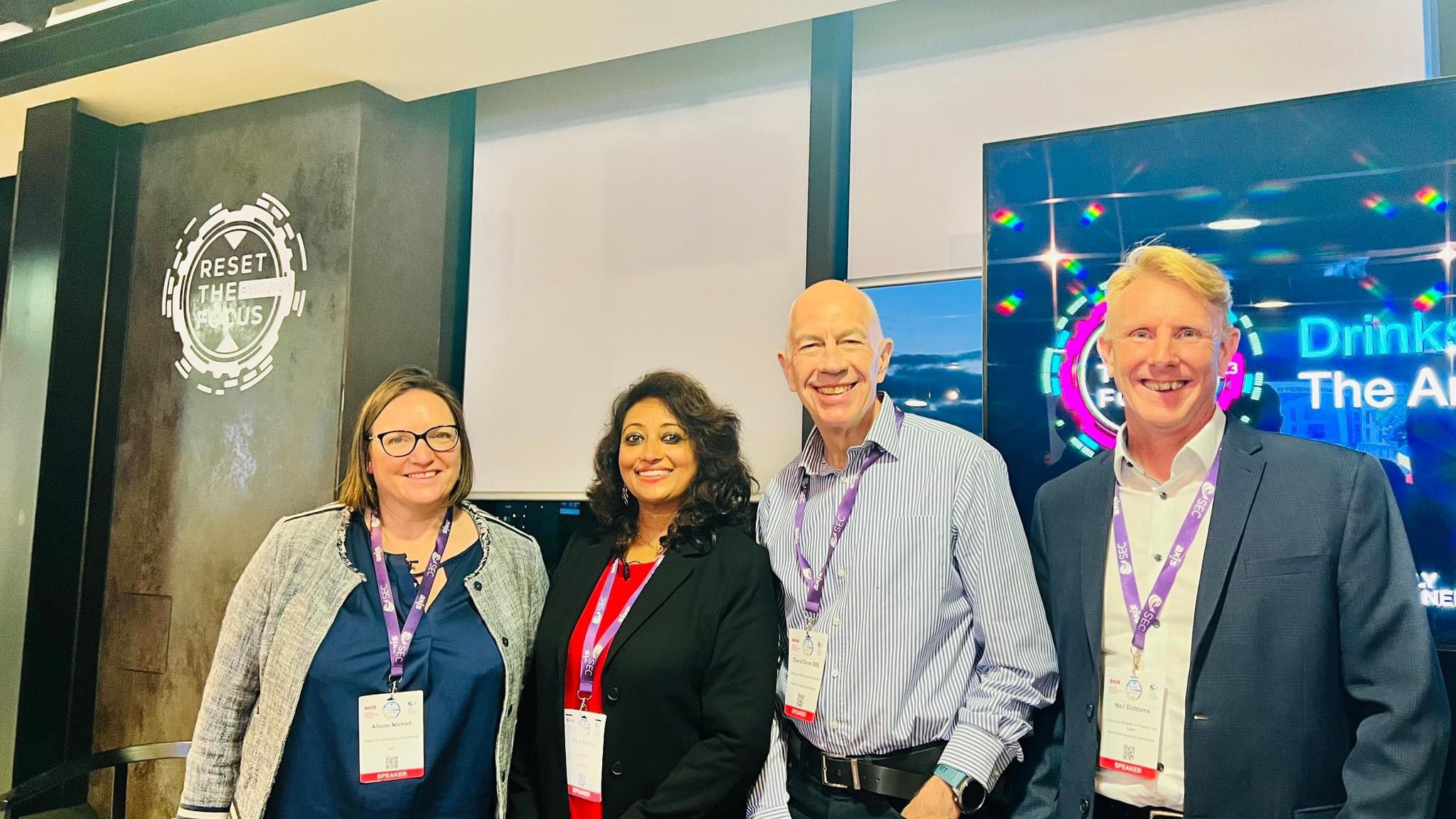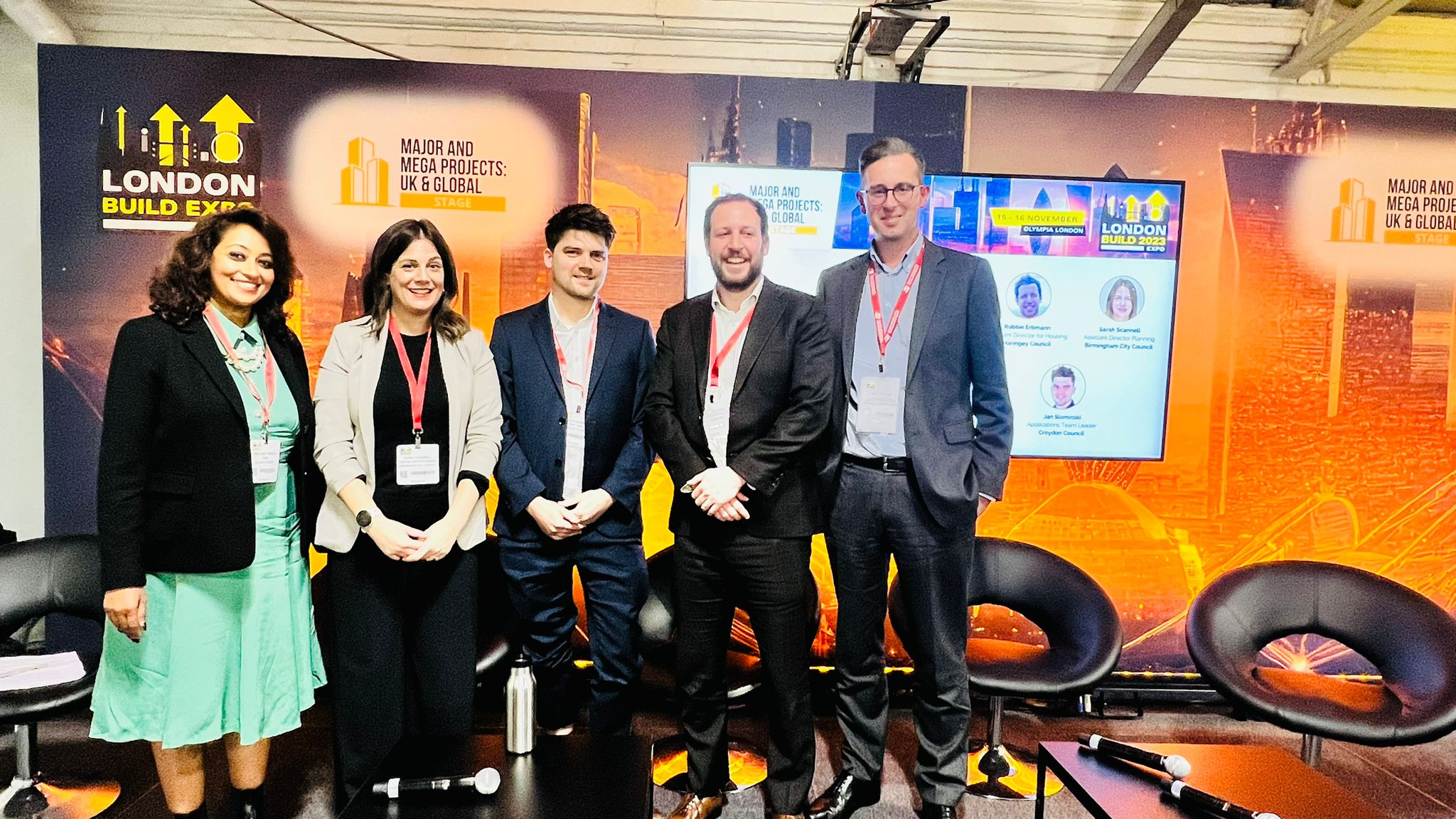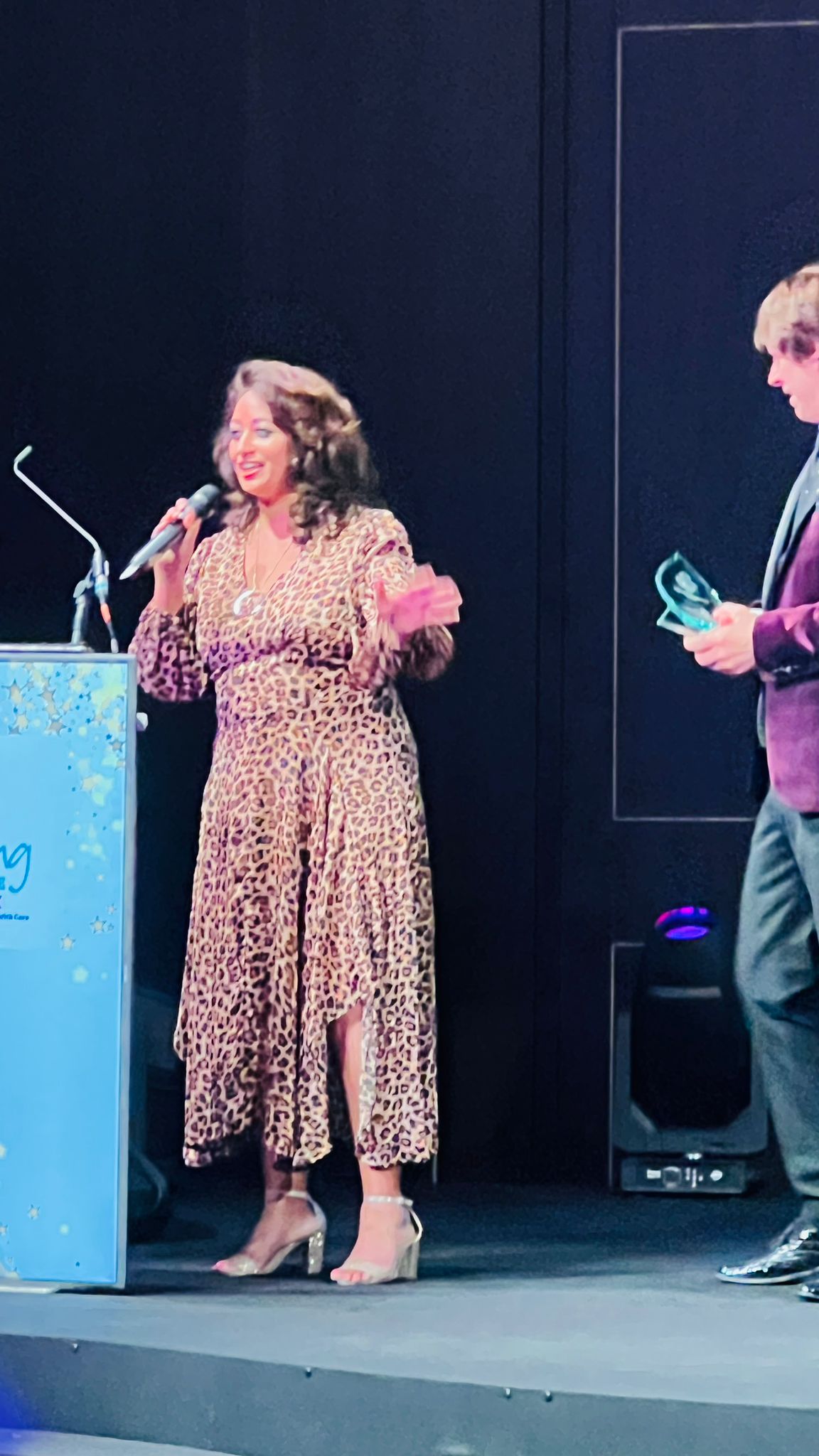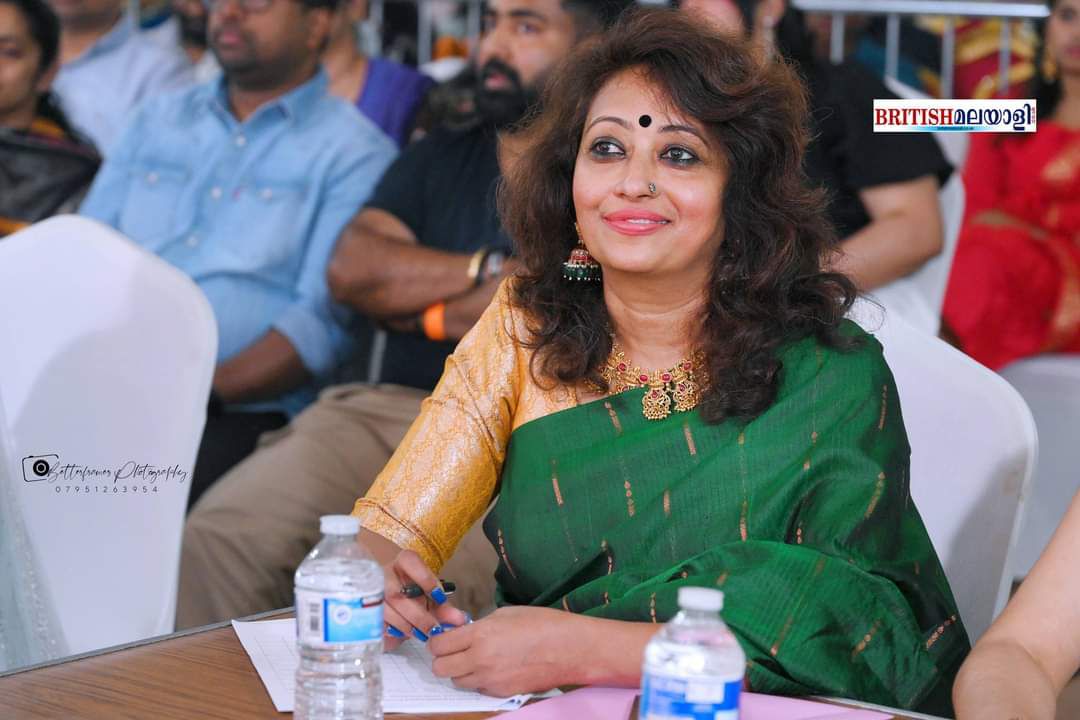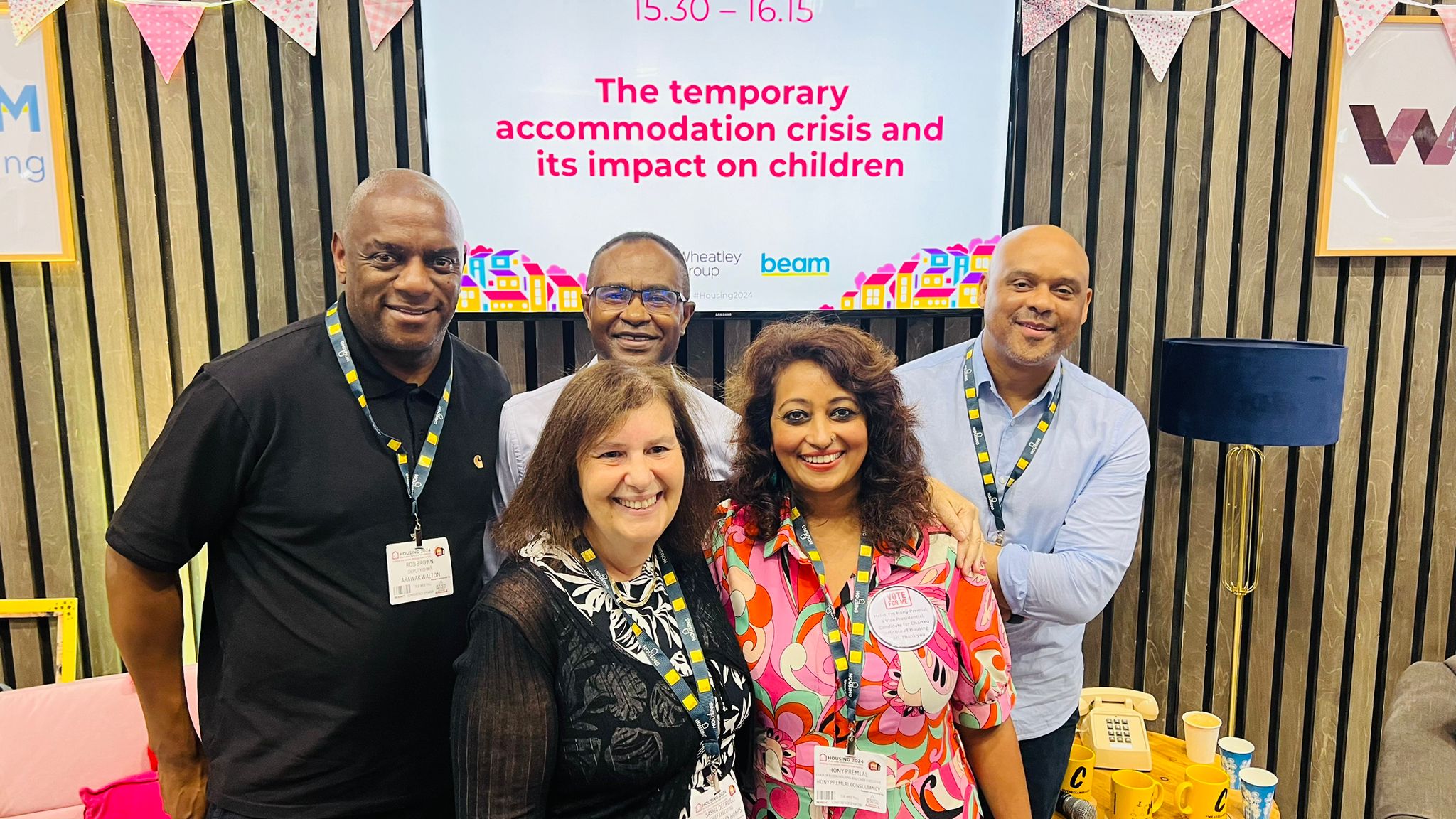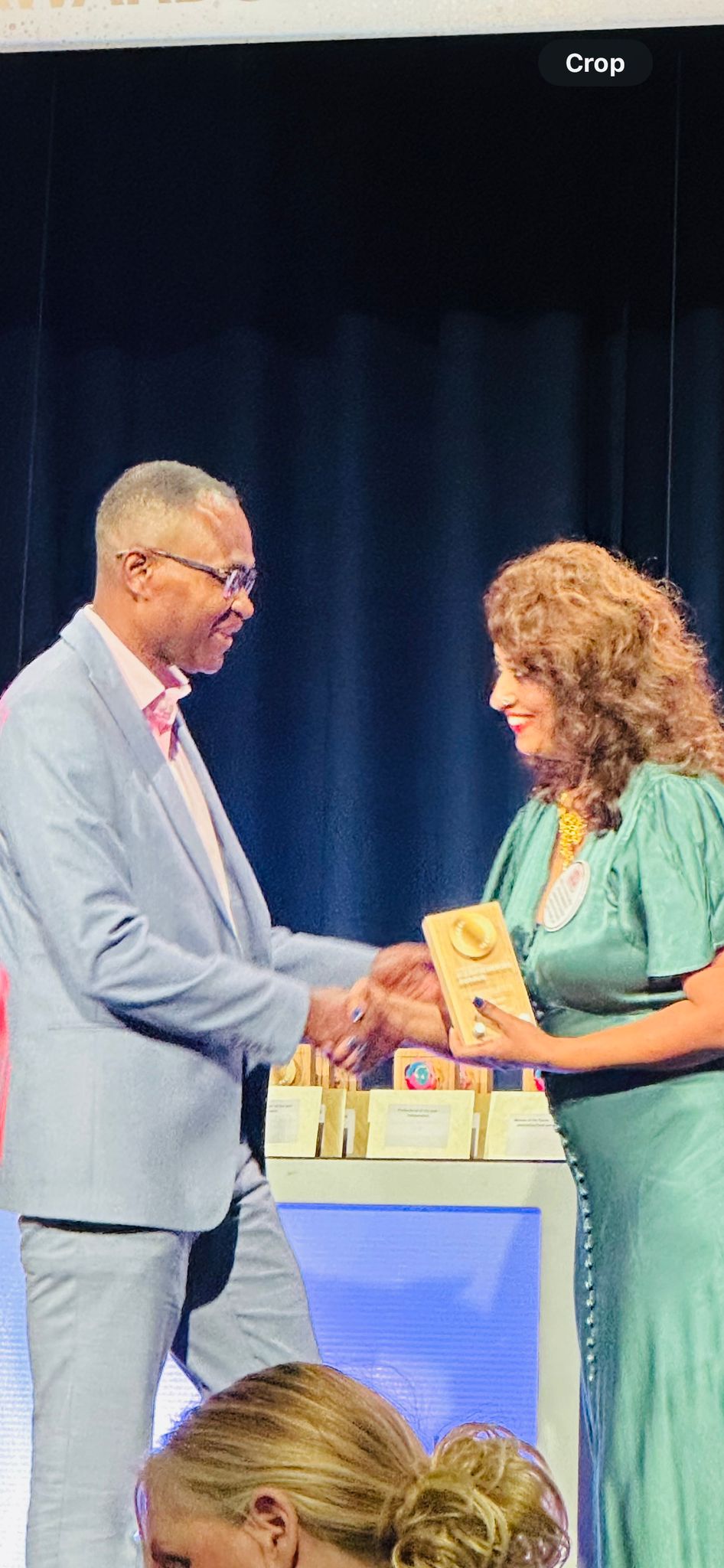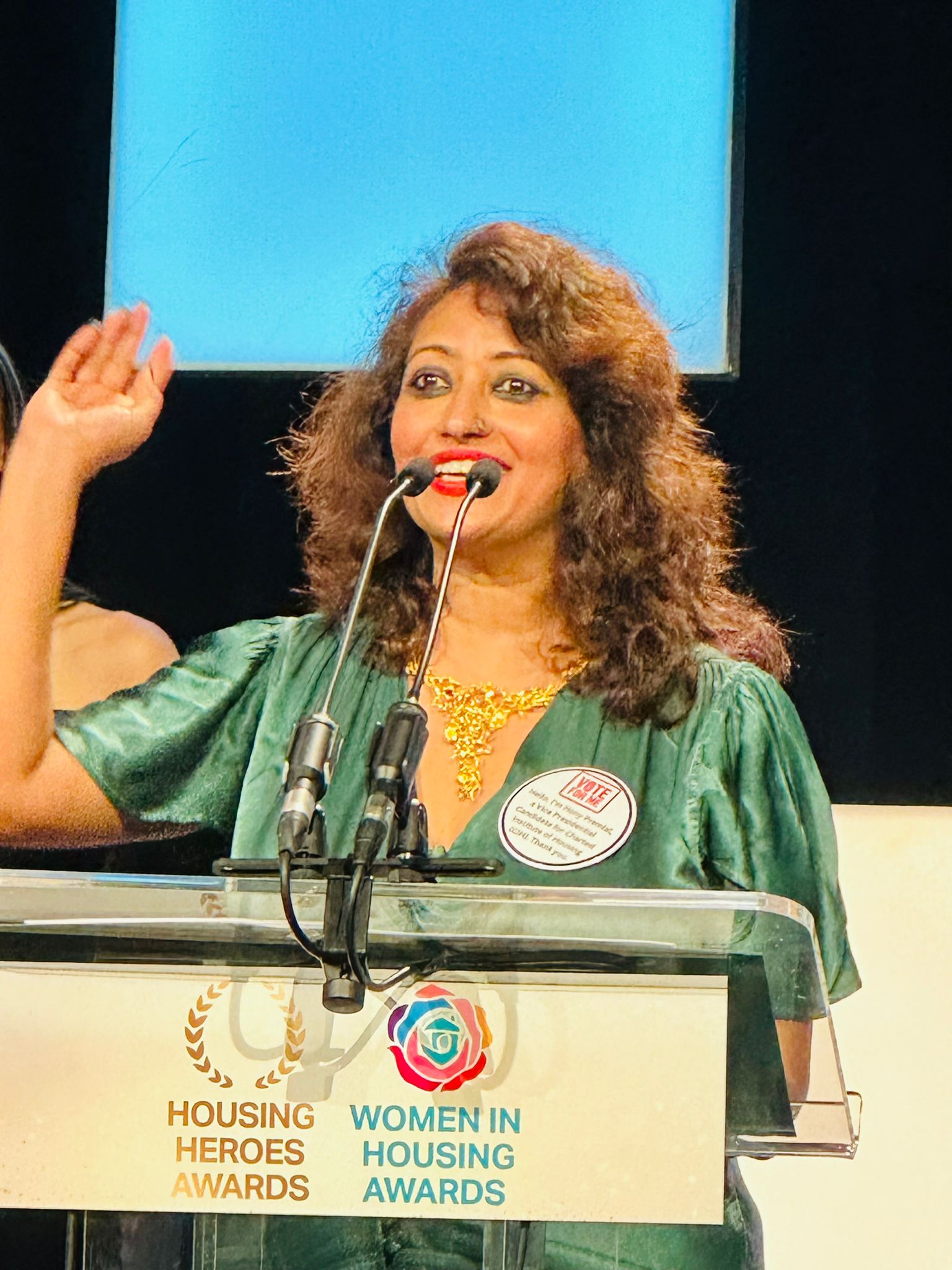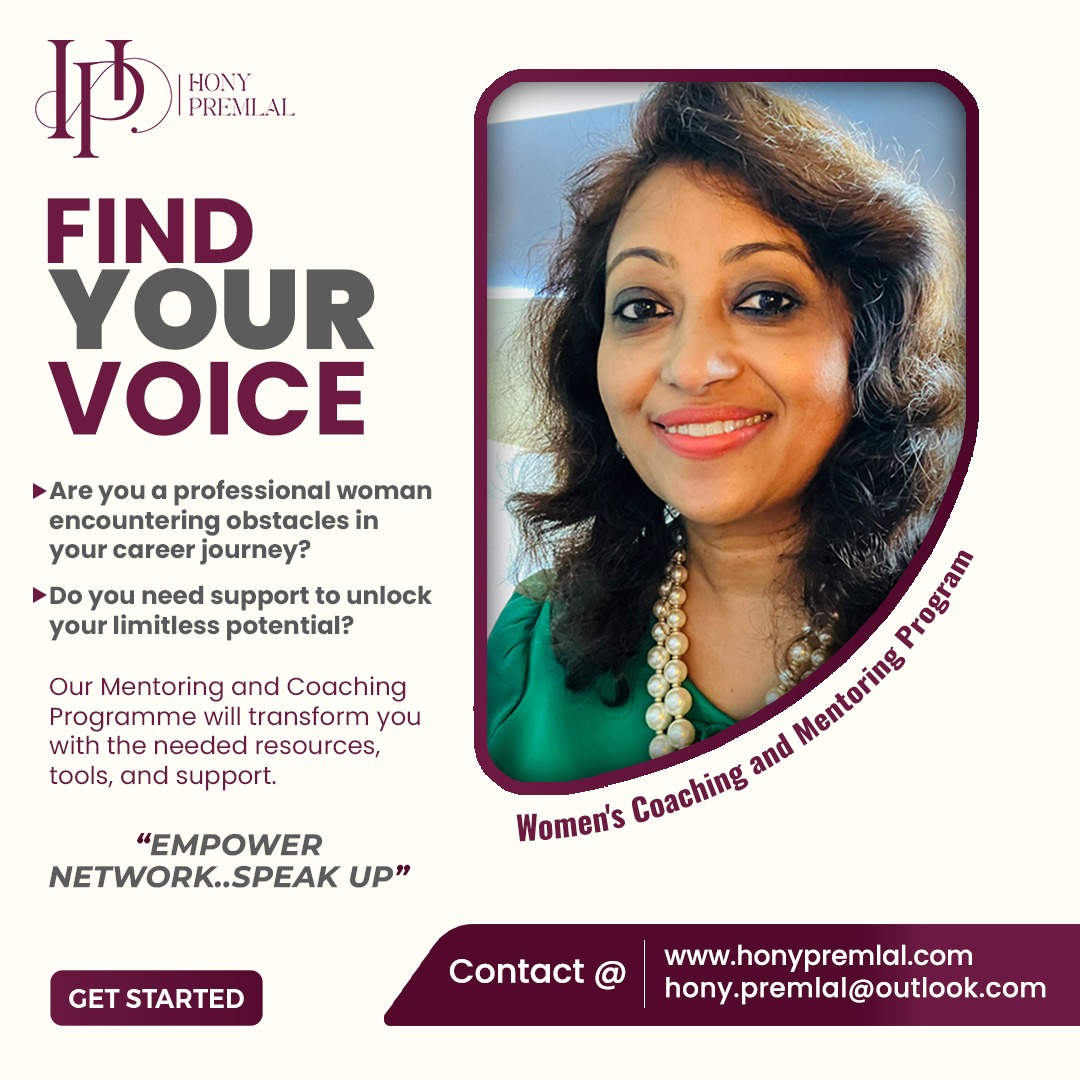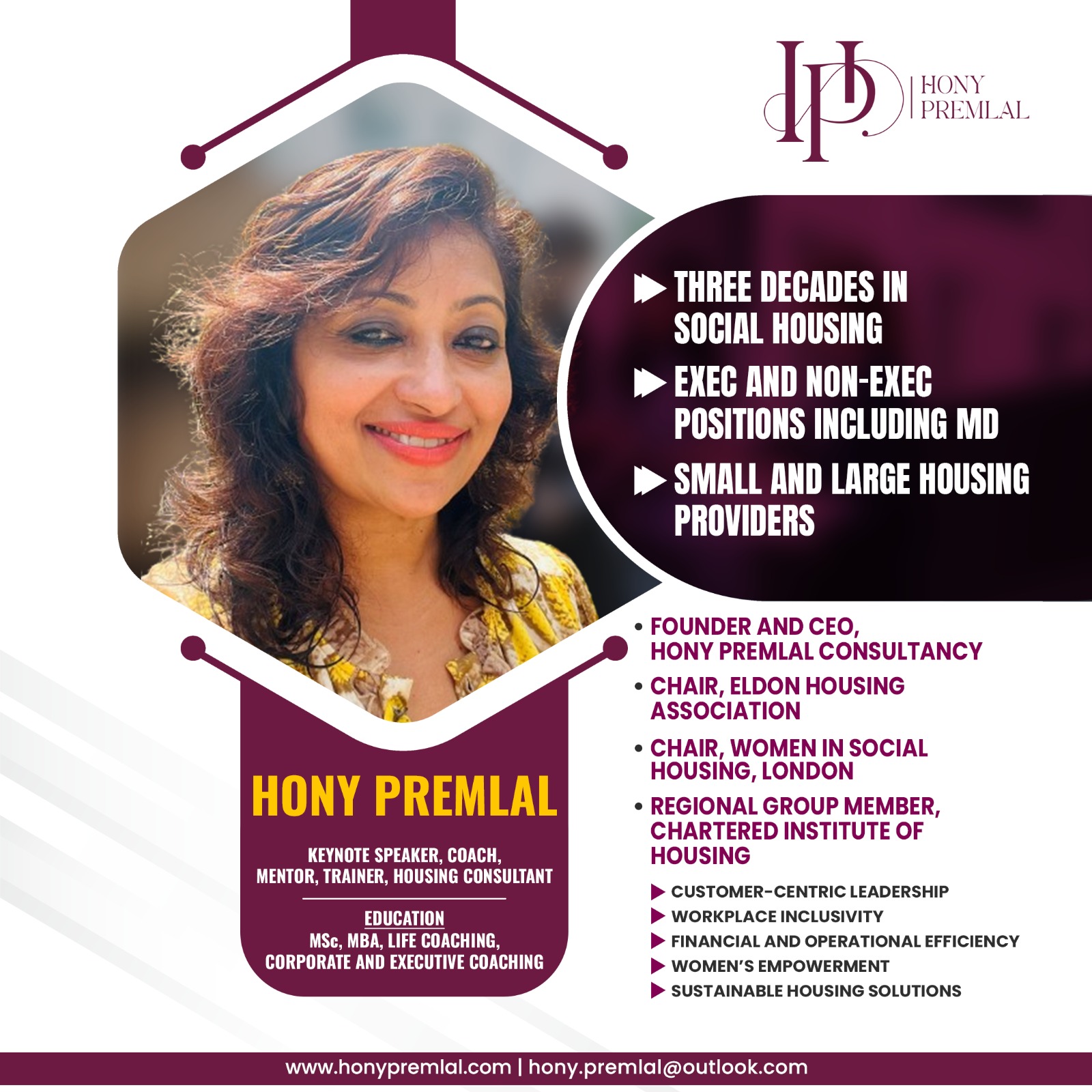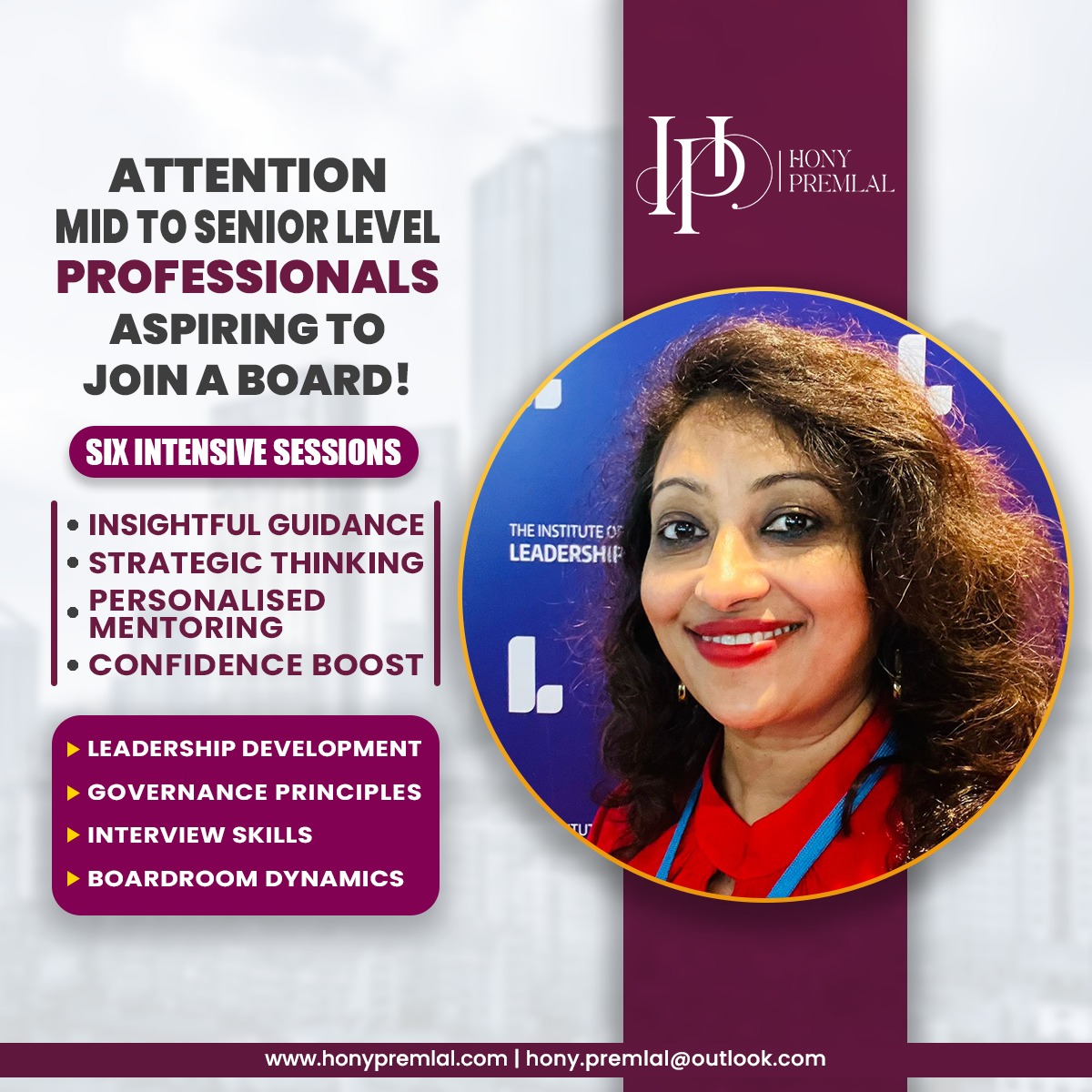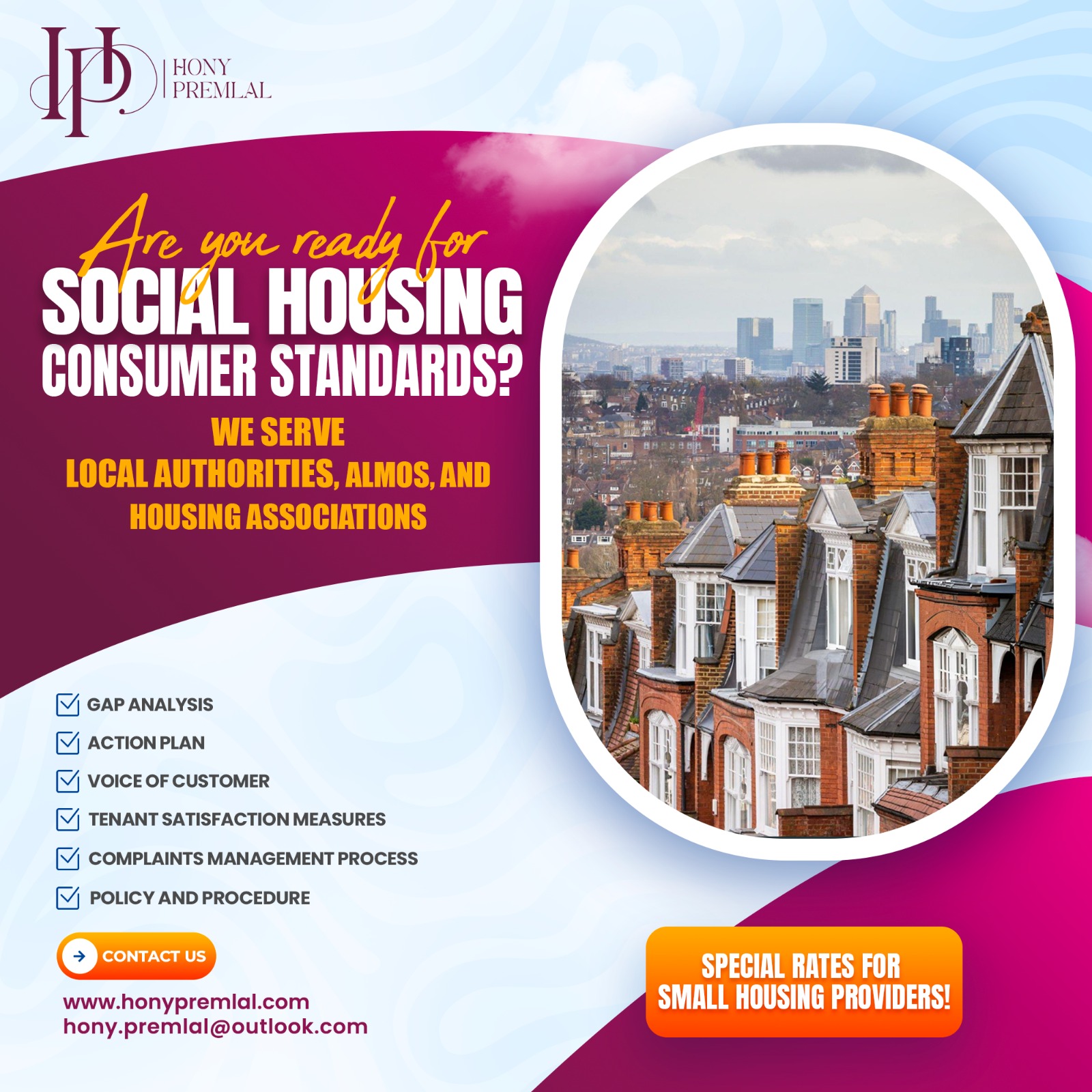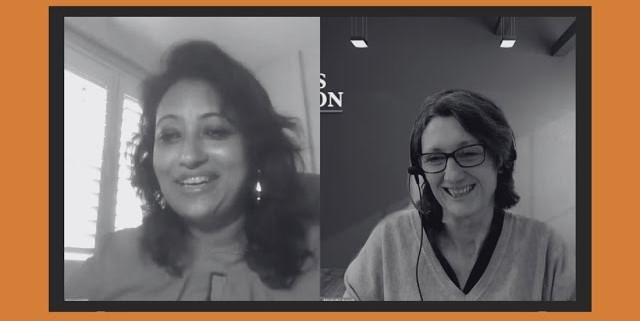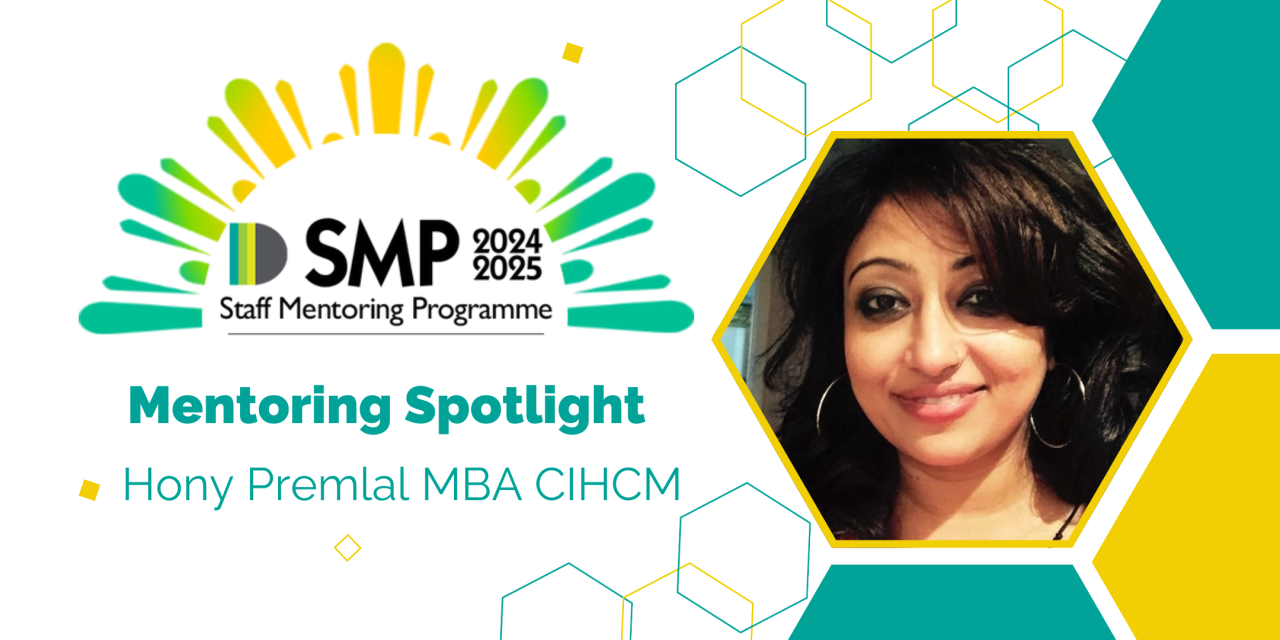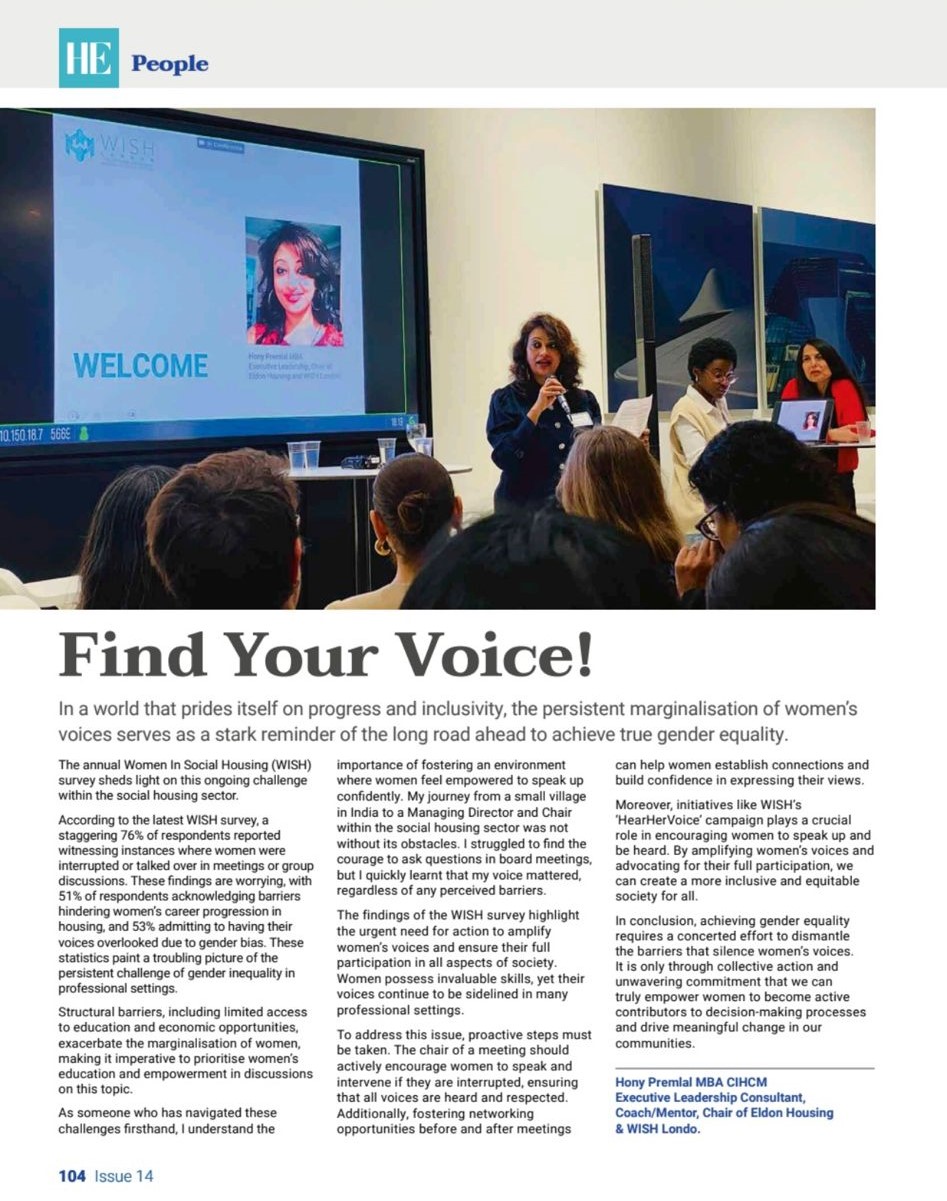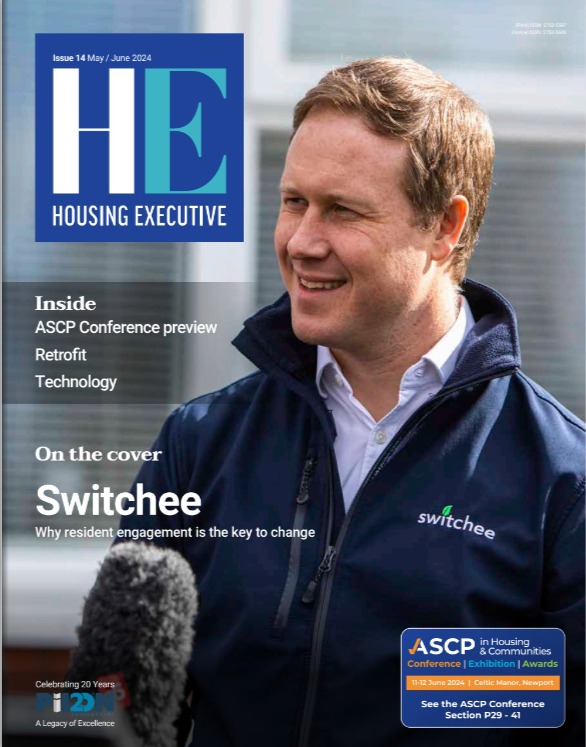Michelle : Hello and welcome to the latest edition of the Impact Room. I'm Michelle Ansell, managing partner of Douglas Jackson. And today, I'm delighted to be joined by Hony Premlal. Hony has almost 28 years working across social housing. She's presently a Leadership and Executive Consultant, Mentor, and Public Speaker with a career that spans across operational governance, CEO, and Managing Director. Hony is also a regional committee member of the Chartered Institute of Housing and the Institute of Leadership and Management, a board member of Trinity Housing Association, and also the Somerset Cooperative Community Land Trust. She has also been a passionate advocate for both the social housing sector, diversity and inclusion, raising and empowering women's voices and presently the chair at Women in Social Housing and Elton Housing Association. So I'm really looking forward to getting into this. Hony, hello and welcome.
Hony : Hi Michelle. Thank you for having me and hope that you are doing well.
Michelle : I'm really well and looking forward to getting into this. What a diverse portfolio! You are an extremely busy and accomplished lady.
Hony : I'm not about diversity, but I do enjoy what I do, to be honest. I think that when you enjoy something you do it doesn't become a challenge.p>
Michelle : Brilliant. Okay. So let's see. I think before we start, what would be really interesting to people is if you could give us a bit of a history because your path and your journey to the boardroom especially is really fascinating. Do you want to sort of just give us a little sense of that and talk to a bit about that, Hony?
Hony : Yeah. Thank you, Michelle. I want to introduce my roots first. I was born and raised in India, in the southern most part in the state of Kerala. I was not planning to come to London in my early days. Obviously I studied in Malayalam which is the local language. I was a very happy child and carried on living in Kerala. I did complete my degree in Chemistry and then I did a Masters in Biochemistry. You know it's one of the Asian countries where when you study and get to a stage, your parents say, oh, this is the time for you to get married. So I got married and came to UK after that. So that was not planned and was not was in my wildest dreams. But, yeah, I came from very tropical country. I came in the September October time, well, you can imagine, quite winter times. So, not only the language was the barrier because we speak in our mother tongue all the time. English was not a language I was familiar with even though I had studied English really well. When I came here, the weather was a barrier for me to adjust first and then there was the language. I thought my having done a Masters in Biochemistry was enough to get a job here. Sadly, I was not accepted, and ended up job hunting for over two and a half years. Those were very difficult times, I must say. By this time, I stopped job hunting. I did some courses to upscale. I did a computer course. I did a foundation course in business studies, I wanted to make sure that I get a job. So I was really sharpening my skills.
Michelle : Yeah.
Hony : And, yeah, finally, I've got my job as an admin assistant in a small housing association. I didn't know anything about housing associations because I didn't know what social housing means as well. That was my first journey in housing, and I loved it. And I started talking to customers and really helping them, working with the other members of staff and then realized this is something I wanted to do. I did not want to do biochemistry. I realized that this was the passion I wanted to explore. I did a foundation course in housing, and then I would say if that job or if the CEO didn't inspire me, I would not be working in housing now. Her name is Elizabeth, the CEO at that time. She said, Hony, I can see a future in you, and you would get to great heights. This was over almost 28 years ago.
Michelle : Wow.
Hony : And I did. I've studied. I've had 2 daughters. While I was raising them, I went to university in evenings. I did have my MA in Housing Law and Policy. Then I progressed in career to housing officer, manager, head director. And then, over 10 years ago, I thought I want to give something to the community, something to the board. So I joined an Alm Houses organisation as a volunteer trustee. I must say those days there were not many people like me sitting in a boardroom. It was interesting when I went to do a tour with the fellow board members, and then some of the residents said, who is she? And they said, she's the new board member. And then they said, oh, she doesn't look like a board member. She's too young and she doesn't fit the usual. And then the transition to board member was quite daunting. Then I decided, I'm enjoying this, I decided to join more boards as well. That's my story in a nutshell.
Michelle : Fascinating. What an extremely, well, a massively success story, but also one of adversity as well that you've touched on that you had to go through. But, I mean, interestingly, and we'll get into a lot of this as we go through, but you talked about how much your mom had helped and sort of pushed you when we've spoken before. But also the fact that you had a female CEO as well, and you said, not many people looked like me at the time, and I think that's something really important when we get to the diversity part, to having these role models and these people who do inspire and push us, regardless of gender or race or whatever. But equally, if we can see people who are more like us, it does help propel people. What would you say to that?
Hony : Yeah. Definitely, Michelle. I've mentioned my mom because, my mom was or is still my inspiration. She's still living in India, almost 88 now. She was I think the first woman in her village to go to university and get a degree. So you can imagine, and she became a teacher and head teacher later on, so she always says, try, try, try again, you'll get there. And I think even now if I ask her something, yeah, go for it and don't limit yourself, I think that is something always is in my thinking. Yes, women are still, I feel, suffering from the imposter syndrome stopping them to get through where they want to get through. As a working woman, you have lots of challenges. I've seen a cartoon the other day and it shows a woman running a race. There are so many barriers like, a washing machine in the road and there are so many things she has to get through in the way and when trying to get to the finishing point. And as a man you have nothing in the road. Oh, I know it's changing now. There are lots of men helping the families and things like that. But women have a tendency when they have children and other duties, and also the imposter syndrome. You do need to see other, inspirational women or role models who say that it's possible because I remember when I was working for an organisation as a senior director, the organisation didn't have any BME people on the senior leadership, and some of the housing officers did say, Hony, it's really nice to have you in that position because that inspires us and I think that's really important to see the visibility. I've seen NATFED stats, recently. It was less than 1% Asian on the senior leadership position, and I think 3% black people. So you can see it's a minority. There are some improvements in the board positions recently, but I think there is a lot more to do.
And when you get to those roles you mentioned, I've become managing director from frontline, and I think it's my duty to tell others it's possible, have that mind set and obviously you do need to work hard as well, as nothing is easy. Obviously, this is one thing I did as well. Being a woman, you may have to work, 3 times more than somebody else. That needed to change because we should have equal priorities and opportunities for everyone.
If somebody is thinking of getting a board position, please go for it because I do some mentoring and coaching for women to progress their career and board position.
Michelle : Fabulous. When we last spoke, we were talking about your new endeavours and the various roles that you have and also the change of direction from a conventional senior leadership role into being this board adviser, NED, independent consultant mentor, etcetera. Can you tell us a little bit about that? What do you think is the biggest difference from that to what you're doing now?
Hony : Yeah. That's a very good question, Michelle, because, I never thought of leaving my permanent job to do something different because obviously we all have the fear of losing something steady, the change is quite worrying for everyone, isn't it? I'm not immune to that either. So because I used to work for an organisation when they were going through merger, I decided to go into an interim director role. I worked for many organisations. Last year, I thought why not I do something different? So I've become a consultant, a coach, a mentor. Currently I'm working with the organisation to look at the operational, strategic and governance arrangement and how they can improve operationally, strategically and also, how and what board arrangement can be different. So the whole aspect of it, I'm currently working on a project, so it's obviously it's pros and cons of everything. When you're working for a steady organisation, you know what's it like tomorrow or the next month. But when you do, like this sort of work, it’s different. For me, that difference, that excitement, that's working differently, looking out as an independent person going into an organisation, how can I make this organisation better, what things will add value. So I'm doing that, really using my all the skill and experience I gained over the last 28 years, now I'm applying in different ways, I'm really enjoying that experience, obviously helping organisations to see and also the impartiality helps me. If you are within the organisation you may not be able to see it.
Michelle : Great. Your background includes a lot of customer-focused positions and with the new customer tenant standards, what are your thoughts on what the sector will need to do to improve their grading in the coming years?
Hony : Yeah. I've always been passionate about customer involvement, customer care, whether I was a frontline worker or managing director or board member. I try to listen to customers' voice wherever possible. Even at the board, I go and see customers, talk to them, really understand what they feel. I've been to the tenant panel and really asked them how they feel about the service. What can be done differently? And that should be the thinking for anyone in an organisation. If you work for social housing, you cannot differentiate between people. So it's everyone's job to really listen to their voices. I know so many, sad, incidents have happened in the sector and that pushed a regulatory change, but we don't need a regulatory change to do our job really well. The new regulation is for obviously safe and quality homes and listening to the customer voices, dealing with complaints. All these are things we should be doing without a regulation telling us to. I think that is what every organisation should be doing. And, yes, now it's along with the G1V1, now it's the C1 rating as well that organisations need to be compliant on.
It's been interesting how many organisations can actually demonstrate that C1 rating now. It's treating customers with respect and dignity and they have the right to a good quality home. I don't think that should be something they should be asking for, but the organisation has to do. I've been working in the organisation for sector for this many years.
The sector has got lots of challenges as well, because of the financial, impact and is making difficult decisions, different choices also. It's a difficult place to be whether you want to invest in existing homes or you want to build new homes. It's a big, choice that lots of providers need to make. And there are many organisations merging because of the financial viability as well.
Sadly, we're losing a lot of community-based organisations, that approach as well. So it's a difficult place to be but I think you need to be optimistic. You need to be thinking, about how can an organisation make the best use of their resources, how can they collaborate better, that sort of thing needs to come forward. Bring customers with you, listen to them, get them involved because it's about co-creating. Co-working is key.
Michelle : Yeah. It's interesting. And like you said, I think there are so many elements facing the sector. But if you've got a very clear purpose, values, mission, I know the money has to come in and you have to invest in certain areas, but to be customer-centric and do things right the first time doesn't necessarily cost a lot, does it? Because I think everyone in social housing wants to do the right thing. I think the purpose is really there deeply entrenched into the organisations. Sometimes they get lost in the red tape and all the things they can't do, but actually, you can do an awful lot, can't you, even if you haven't got a lot?
Hony : I completely agree with you. There are so many small things that would make a big difference. Whenever I work in any organisation, one of the things I do is I speak to some of the customers, go and see them. Often I hear is lack of communication because I spoke to so and so about this and I haven't heard, but it's about really communicating. How do you feel? You complain to your broadband provider or something about some issues, and you haven't heard about what's really going on, how will that make you feel. So these are customers who are living in your homes. I always say that without those customers I wouldn't have a job. We all need to be thinking that all the time. So it's mostly about the communication. Sadly, the systems we have in now, and we have too many, do not really talk to each other. The information from one department is not going all the way into the other department. So, it's that collaboration between systems and people. I think that would make a massive difference and you don't need much investment to make that change. It's about sharing and working together and taking ownership and responsibility as well. You mentioned about culture, that's something I always say. Drucker said Culture eats strategy for breakfast. It is about good quality, culture, good values and behaviours. Everyone living those values of the organisation right from the board to everyone else, the people going to house, in doing the works, they all have that ethos. You have better outcomes. I think that often that's all customers want. They want communication, be respected, and the simple things we could do make a massive difference.
Michelle : Hmm. Yeah, it is such a good point. And when we talk about culture, I've been reading a lot about those subcultures within a culture because even if the CEO lives and breathes it and he's an amazing CEO, and let's face it, they're not all, are they? But they have to cascade, doesn't it? And every single leader and when we're looking at the future talent and these people who want to ascend and that everyone can affect culture, can't they affect how you reach out, you mentor, you be kind to your colleagues, your customers. You know, you can all add those experiences every day, can't you, rather than focusing on saying, oh, well, such and such isn't happening. We can't possibly do that. But what do you think of that?
Hony : Yeah. I must say, the culture is not just values. It is not something you'd put on the wall and then forget about. In a lot of organisations, you walk into their offices, you can see all the glossy writings and how effective are they. One of the things I've noticed when I was working at CDS was one of the values was kindness. Actually I was really surprised to see that value because hardly any organisation I worked has got that. And it's really important. Be kind to your customers, kind to your colleagues, that sort of thing. So, like you said, the CEO, the board, need to really be the examples. Set objectives that really help people to collaborate. They probably were thinking about their own department or their own area. So you just need to be thinking, how can we bring the best out of all those situations? It is a difficult place to be, but I think we need people to be thinking how I'm going to make a change to that person's life by working together. Things like that can make a massive difference, you need to promote that. And training. Most organisations put a lot of investment in senior leadership training and forget about the middle managers because they have a lot of power. If you really focus on people, have the right training and guidance, it's like a golden thread getting your vision all the way to everyone. You're more likely to give everyone that confidence and I think things will pick up. Obviously, it's a lot of priorities everyone has to manage.
Working in social housing can obviously be quite stressful. So we have to be mindful of people's well-being as well. How do we look after your people? I think that's also key. Sometimes, people always think we are all about customers and we don't think about our colleagues. That can be also damaging. So you have to be careful as the CEO to see that the leadership team are looking after the well-being of the colleagues too. You need to bear that in mind as well, especially in the time of hybrid working. Are they okay? How are things being managed?
Michelle : Yeah. And as you say, if we look at diversity, and we've talked a lot about that, the mentoring and the passion that you have in that area. And there is a clear issue, isn't there? Not just in housing associations, but across the business world when it comes to under representation especially in the boardroom. But you speak passionately about it. But, also, the things that you touch upon about the lower end of the spectrum in terms of teams and leaders and managers and the investment that we put into them because we are losing a lot of people as they come through the rungs of leadership. They're dropping off at massive rates. So I mean, what do you see as some of the biggest opportunities for the sector in improving diversity at a senior leadership and board level other than some of those things you've already touched on, which are really, really critical?
Hony : Recently I went to a governance conference and I saw that there were all the chairs in the room, and only one or two chairs with female BME people and I was thinking, you know there were hardly anyone else and then someone asked me oh is your organisation a BME organisation. I thought that was really bad, they how can they ask me that. I said no, Eldon is not a BME, but we do have every culture, every race, and everyone in organisation. So that is the way people are looking at it, and that is still the case even if we are in 2024. And so we need to make that change happen. I know there are so many programs, and mentoring and things like that. But I think, also when you're getting that sort of position you also have a duty to bring people up. So I do a lot of mentoring and coaching for women to get board position. When one of my mentees told me she got a board job, I was so excited. It's more a feeling like I got the job, and that is the beauty of it, when you see people flourishing, getting and blossoming into jobs like that as well. There were a number of things when I joined Eldon board. Diversity was very poor. I was the only BME person in the board at that time and one thing I was, keen to get was, more representation or diversity strands. And I did put that in my advertisement. I actually pushed it harder through social media. I'm recruiting, applying. And I think because of me, as the chair was saying, I had more applications coming through. I think the reason is that people felt it, maybe because of me saying it's possible. But when I did the selection, it was based on their merit. Obviously, it was not based on colour or anything, because that I would say that is not right.
It should be someone's merit. We had lots of applications, I've never had any problem recruiting and we have now a really good mix of board and same with the WISH London. So it's about showing what is possible and then and obviously you're bringing people with you. I remember when I joined as a board member, it took me a few months to ask some questions. You don't really have that confidence to ask questions in a board meeting. One thing I realised is, okay, I had to read my pack really well, maybe a few times, some of the packs are over 300 pages these days, so you probably needed 2 or 3 days to get through the board pack and then making sure you put your questions and you understand and have that confidence. One of the things I found really good is, when we have face to face board meeting, go a bit early, get to know your fellow board members, spend a bit time with them. It's called meeting before the meeting and that really helps you to warm up and then you're ready. You're already in that zone of being okay because otherwise you're going as a woman having that problem. We book meetings back to back and you don't really have that headspace to go and network and connect and talk. And men are very good at that. I think we need to do more. Women need to spend that time. And that way it doesn't feel like, oh, you're in a board meeting. You are asking questions because you already know your colleagues in the board. At the same time, it is the chair’s responsibility to make sure you encourage people who are silent to bring them in the conversation and get their confidence as well.
Michelle : Yeah. Really good points there. I've heard the one about the meeting before the meeting, and I think that's really important as you said. Because ultimately these are just people and everyone thinks we think they've got this right or look at them, that's not me or, but everyone's feeling exactly the same. I think we need to remove a little bit of that stigma. And then as you know, the point you touched on was, having a voice because I think it can be really difficult, can't it, speaking up. But it's so important to speak up and because they won't remember if you say something wrong or silly that you think might be wrong, but they will remember if you don't contribute at all, and that's what gets attached to some people when they lack that confidence in that environment.
Hony : But at WISH we did a survey recently and the results were really shocking. A lot of the survey outcome was saying their voices are not heard. There were over 50 people saying that. We have a campaign going at the moment called hear your voice, hear her voice, which is about helping hear voices in a conference. Obviously, at a conference how many women are confident to ask questions? Apparently with more female panel members, women are more likely to ask questions.
Michelle : Very interesting. And so was there any other advice that you had for diverse female and any other aspirational leaders, whether it be to make a career in the housing associations because I know again you're keen to encourage more people in into the sector, the next generation and younger generation as well.
Hony : Yeah, I this it is something I'm really passionate about - bringing more young people into the sector as well because we are losing a lot of professionals especially since now we got this new professionalism and we do need it to make sure everybody is qualified. And we may lose some Directors and Managers through this journey because we do need to be qualified a level 7 or level 5, whatever the appropriate so, some people don't want to study, so we may lose more people. One of the things I am doing currently is working with universities to talk to students and say there is a career, in housing, and this is what we can do and this is what you can achieve and I did. I was lucky enough to speak at London Met University where I did my MBA last year and this year and I must say it was a really good experience going there and talking to those students and the reason I've felt is when my daughters tell people that their mom works in social housing and people asks what that means. Because people don't really understand what social housing means. And so one of the things I am trying to do is, this is one of the objectives for CIH and WISH as well, is work with schools and universities and raise awareness of a career in social housing and what's it like. Because if you say you're a nurse, people would know, but if you're a housing officer how many people would know? I think that's even though the housing officer job is so complex and you do you have to know so many things. But I think if the professionalism brings a bit more standards and understanding, it will help the sector as well.
Michelle : Yeah. And I think you make a really good point because so often the children, the youth, the people in education, they're not really taught about these different roles. And it's not just even the roles, it's the opportunities. We know that data and insight and analytics are going to come in, massively to the sector as is AI, technology, but also that purpose that's meant to be really important to the younger generation. As I say, it's there in, waves within the social housing sector. So if they want to do good and it's important for them, then where they're going to get that far more from there than working for a bank or a retailer or something like that. There's so much more to it and it really does change and affect people's lives. But I don't think they have that knowledge, so I think education is critical really and that will hopefully attract more to the sector as you say.
Hony : Yeah. Definitely. I think it's the more awareness and just not the schools and universities. I hope the government treats housing as a key policy because if someone has a good quality home they're more likely to have good education, good employment, good healt="Hony Premlal | "h, all of those things. So we can save a lot of money for NHS. I always say if they're living in a good quality home, they may have a better job and the kids may have a better life. So it's all about treating housing as a key policy and we need to build more sustainable and good homes. I’m really hoping that it will also happen in the future because rough sleeping and homelessness are going up, and we need to tackle that as well. So it's society’s key priority, I would say. I am definitely working with different organisations to raise awareness of the importance of social housing.
And the job opportunities are going to come and hopefully that will help because the data is a big regarding talent in the sector because that is a part of the social housing regulation as well, good quality data. And we don't have the standardized data, and I know that we need to get the standardization, making sure we get good quality data, and we should be able to use the data in a way that that we can deliver the service to suit the customer's needs as well. That, hopefully, would be able to help us, to make that plans for our services as well.
Michelle : Yeah. Excellent. Anything else then you you'd like to add at all?
Hony : Yeah. I just want to say a couple of things because from my own experience, I would say, if you want to be successful in your career, be prepared to work hard, be resilient, be curious. Definitely driven and we've obviously prepared to make changes in your life and prepared to be ready for change because the sector is changing every day, and so you cannot sit and wait, things happen. And the line I always say is it's essential to be comfortable in being uncomfortable. So I always say, if I come from a tropical country and settle in this country and with a different language, if I can achieve what I achieved, I would say anyone can. Anything is possible for anyone with the right determination. And you can tackle any challenge and have that positive mind set. If someone knows me, they know I'm a big positive, really, say yes we can do this, it might take time, but it will be possible. I think that you do need to be have that positive mind set. If you really believe in that, then things can work out.
Michelle : Brilliant. Well, what a great note to end on, and it's been really great, to talk with you and learn more about you as I'm sure it will be for others. And I'll pop how people can contact you, obviously, on this ending anyway. So anybody that wants to reach out can do so, and, hopefully, I'm sure you'll be able to help them with the many sort of hats that you wear. So, fantastic, thank you so much, Hony.
Hony : Thank you, Michelle, for having me. It was great talking to you. And, hopefully, I can inspire at least one person through my podcast.
Michelle : Thank you very much.












